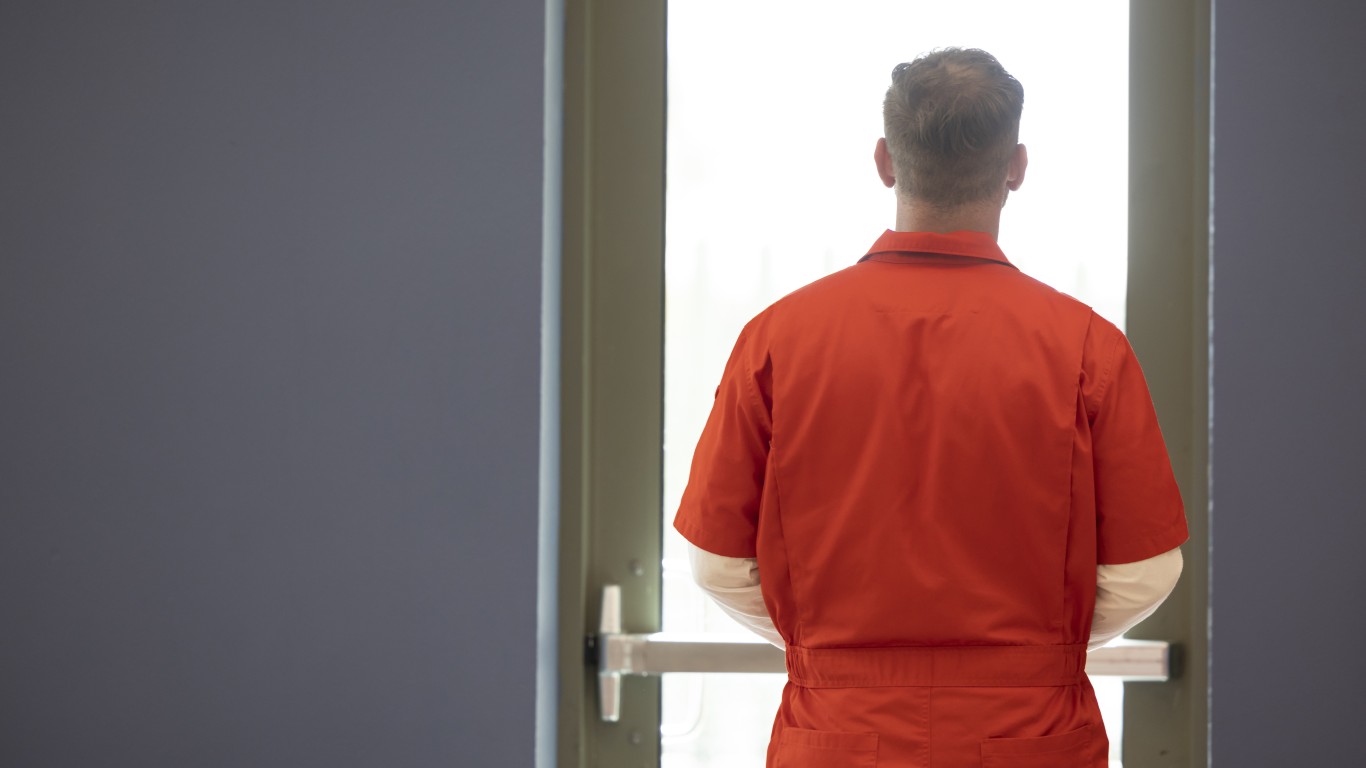
The prison system in America is a human rights atrocity. With dirty, inhumane facilities, one of the largest prison populations in the world, little to no rehabilitation services after incarceration, and a culture that views criminals as a lower class of human, it should come as no surprise that America’s prison system doesn’t function as well (to put it mildly) as systems in other parts of the world.
To call our prison system a loophole for modern slavery is not hyperbole, and many human rights activists have accused several states of doing just that: facilitating and profiting from slave labor.
That being said, here is what each state spends on each prisoner.
Why Are We Talking About This?
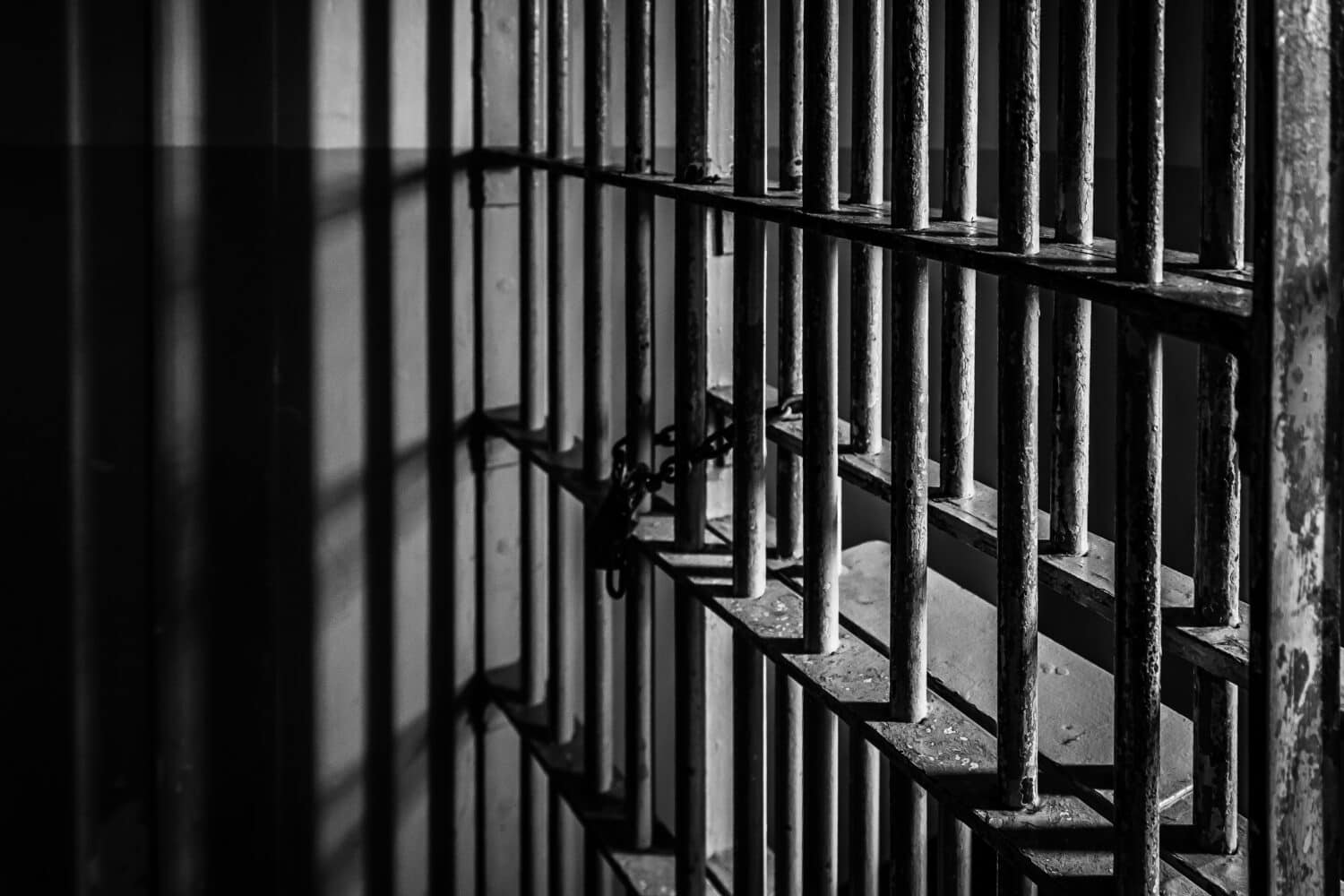
Our prison system is broken, and the only way to make any meaningful change is to educate ourselves and lobby for legislative action. Some of that research can begin by learning how much (or little) we pay to care for those who society has failed.
Background on Prison Spending in America
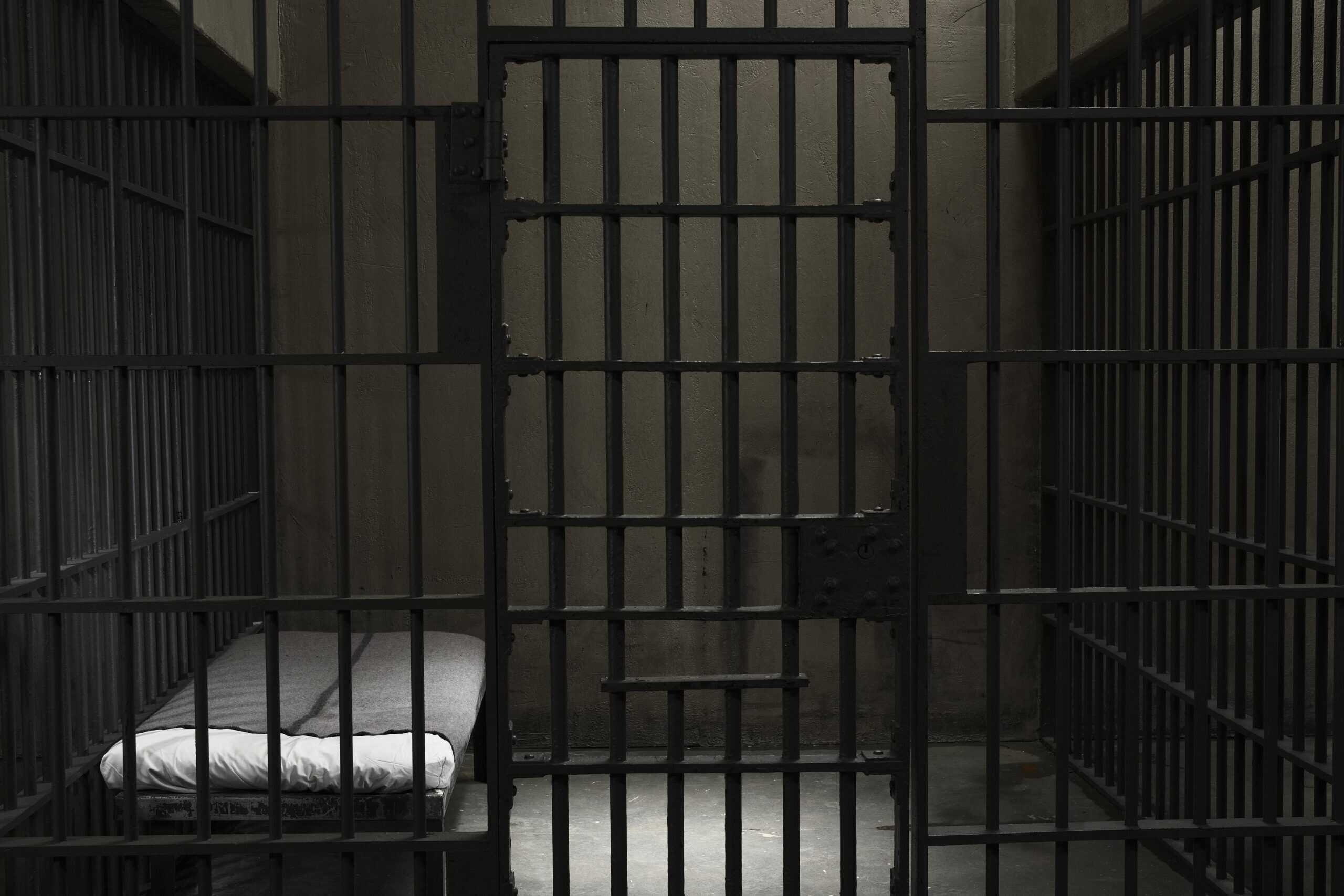
Many of the prisons in the United States are run by for-profit companies. This means that they have every incentive to not only incarcerate as many people as possible, but keep them incarcerated as long as possible, all while charging the government as much as they can while providing the bare minimum in terms of services, food, and resources.
These prison corporations are highly motivated to build new prisons and fill them with as many prisoners as fast as possible, so they lobby for harsh prison sentences and mandatory minimums. Several prisons have also refused to release prisoners after their term has ended because the state will continue to pay for their upkeep as long as they are kept incarcerated. Welcome to the land of the free!
The cost of a state’s prison population is a combination of many different factors, including the number of prisoners, the programs and benefits provided to prisoners, how much the private companies make on top of the costs, and much more. While states might have a budget outlined for their prison systems and prisoner care, the actual cost of a prison population is really determined by how much a company wants to charge for its services.
A lower cost per prisoner might seem like wise frugality on the surface but is actually the result of right-wing politics, utter contempt for prisoner well-being, and a disregard for the sacred nature of life, not out of a seeking of a balanced budget.
For example, Texas spent $23,000 and wasted hundreds of hours of the Texas Attorney General’s time in 2021 fighting a prisoner’s lawsuit against the prison system because it would not provide him with a cotton blanket because the recycled garbage blanket they were provided caused allergic reactions and open sores. Instead of paying for a cheap, cotton blanket, the state decided to pay for a lawsuit. This is in addition to hundreds of other examples across the country like Texas refusing to pay for air conditioning in prisons because air conditioning is not a human right, resulting in the deaths of many prisoners.
A low cost-per-prisoner should not be seen as a sign of any kind of virtue or good governance. It is evil. Keep in mind, that just because this is a cost breakdown per prisoner, that does not mean that all this money actually goes to benefits or upkeep for the prisoner. Most of it goes to corporate profits and other programs not directly related to any prisoner.
#1 Alabama
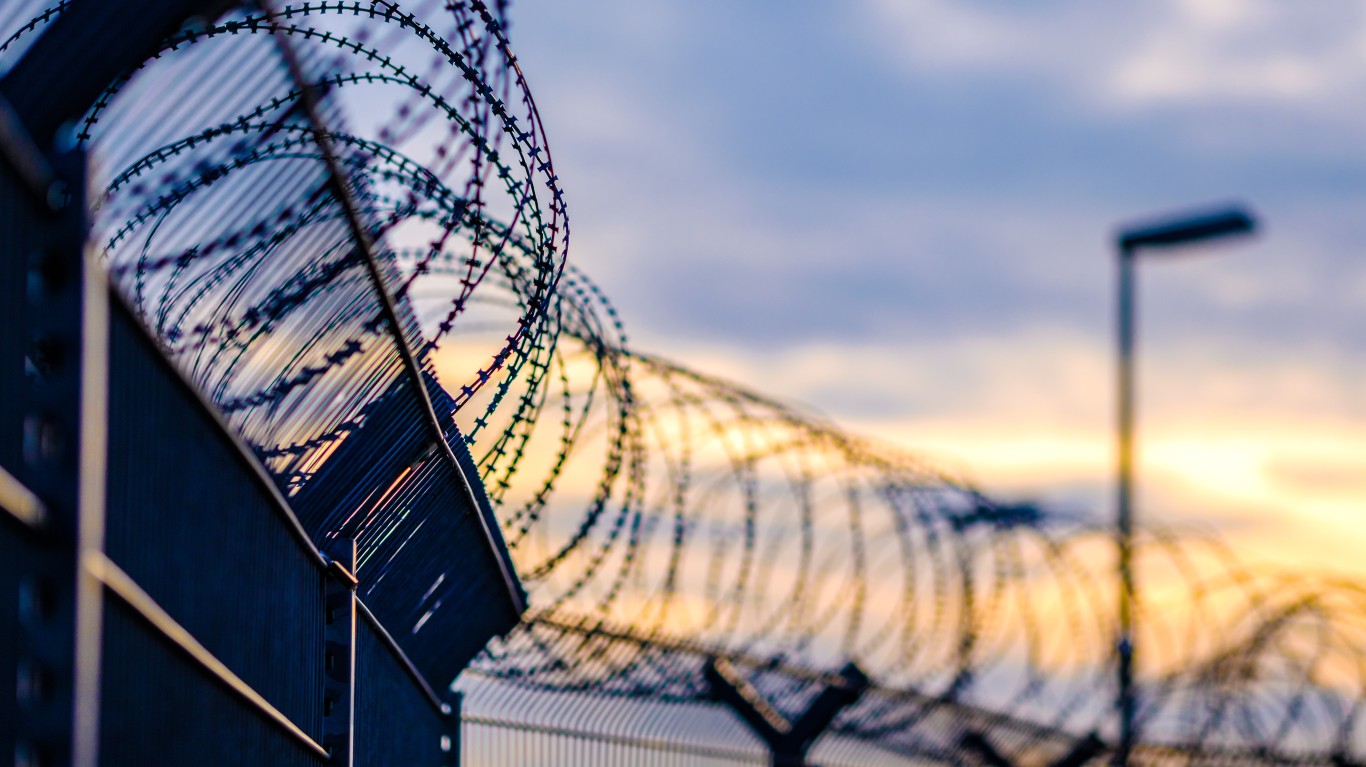
- Spending per Prisoner: $33,000
During the 70s, a federal judge said the Alabama prison system was barbaric and forced it to close prison “dog houses” where too many prisoners were crammed in hot, dark, dirty cells. It also settled a lawsuit in 2015 over abuse at its women-only prison facility.
In 2016, the federal government opened an investigation into Alabama prisons and found that it provided insufficient mental health care, therapy, out-of-cell time, suicide prevention, and more.
In 2019, the federal government said that Alabama prisons are unconstitutional and unsafe.
In 2024, a lawsuit was filed against the state because several prisoners who died while in prison were being returned with many of their organs missing, probably harvested by officials for sale or transplant.
#2 Alaska
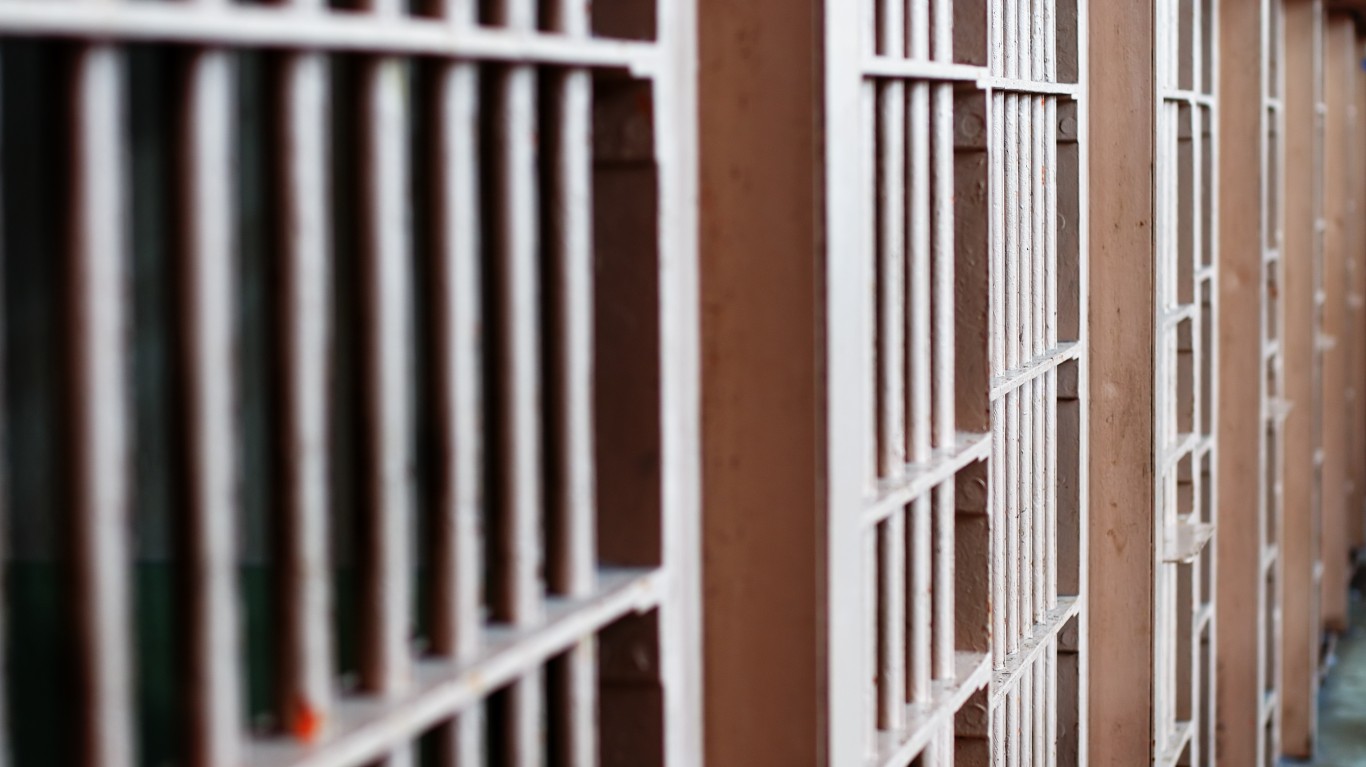
- Spending per Prisoner: $93,000
Alaska is second only to New Mexico for the percentage of prisoners kept in private prison facilities, and at one point around 30% of those prisoners are kept in facilities outside of the state. Many of the prisoners kept in Alaska facilities are still awaiting trial and are kept in prison anyway.
#3 Arizona
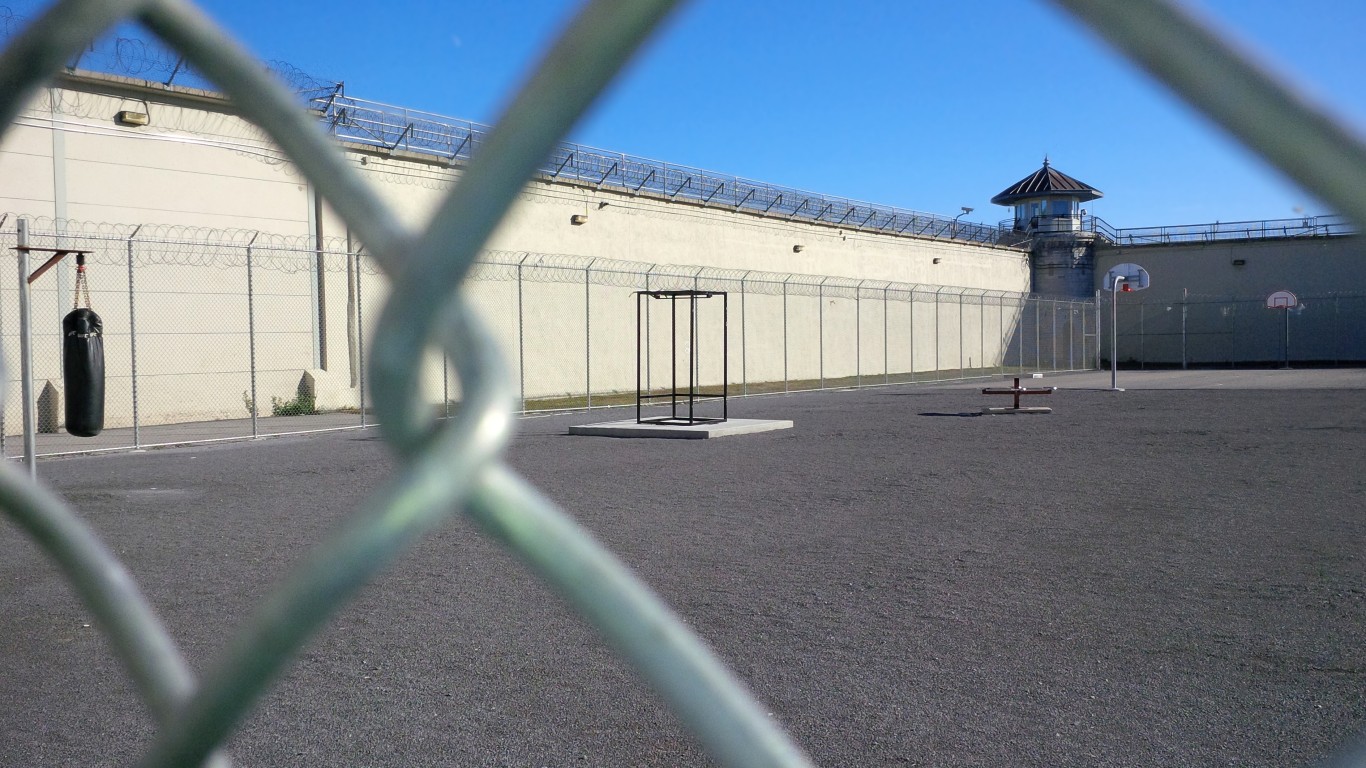
- Spending per Prisoner: $41,000
Arizona hosts prisoners imported from other states, including California, Hawaii, Alaska, and Vermont. There have been several deaths and other violent events because prison officials forged inspection documents or avoided their duties.
#4 Arkansas
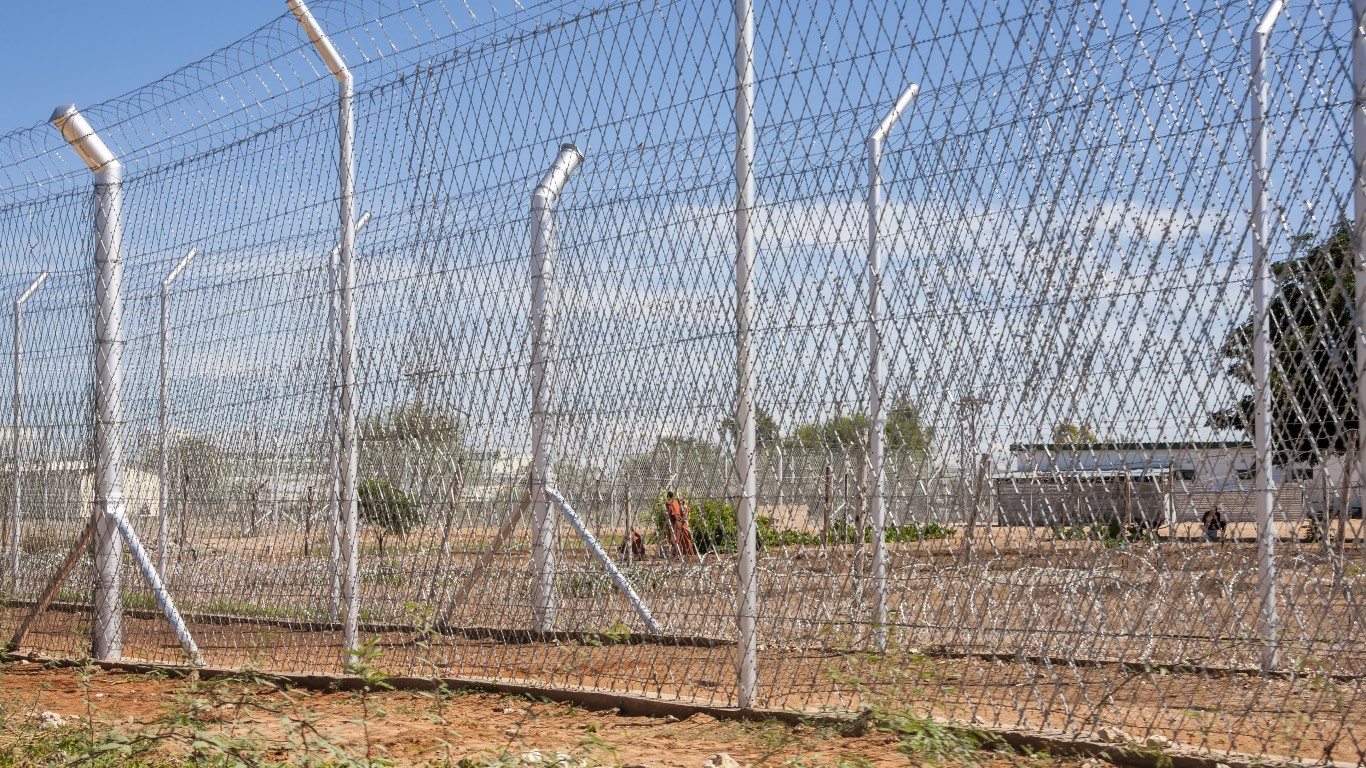
- Spending per Prisoner: #23,0000
The Arkansas prison system was declared unconstitutional, unsafe, and unsanitary by the federal government in 2003. Arkansas was a strong supporter of the prison farm system, in which prisoners were forced to work illegally on prison farms without pay.
Rampant corruption and America’s war on drugs have caused Arkansas’ prison system to explode over the years. Yet Arkansas has the lowest cost per prisoner in the entire country, meaning even though it has a large prison population, the state barely covers the necessities for each prisoner.
#5 California
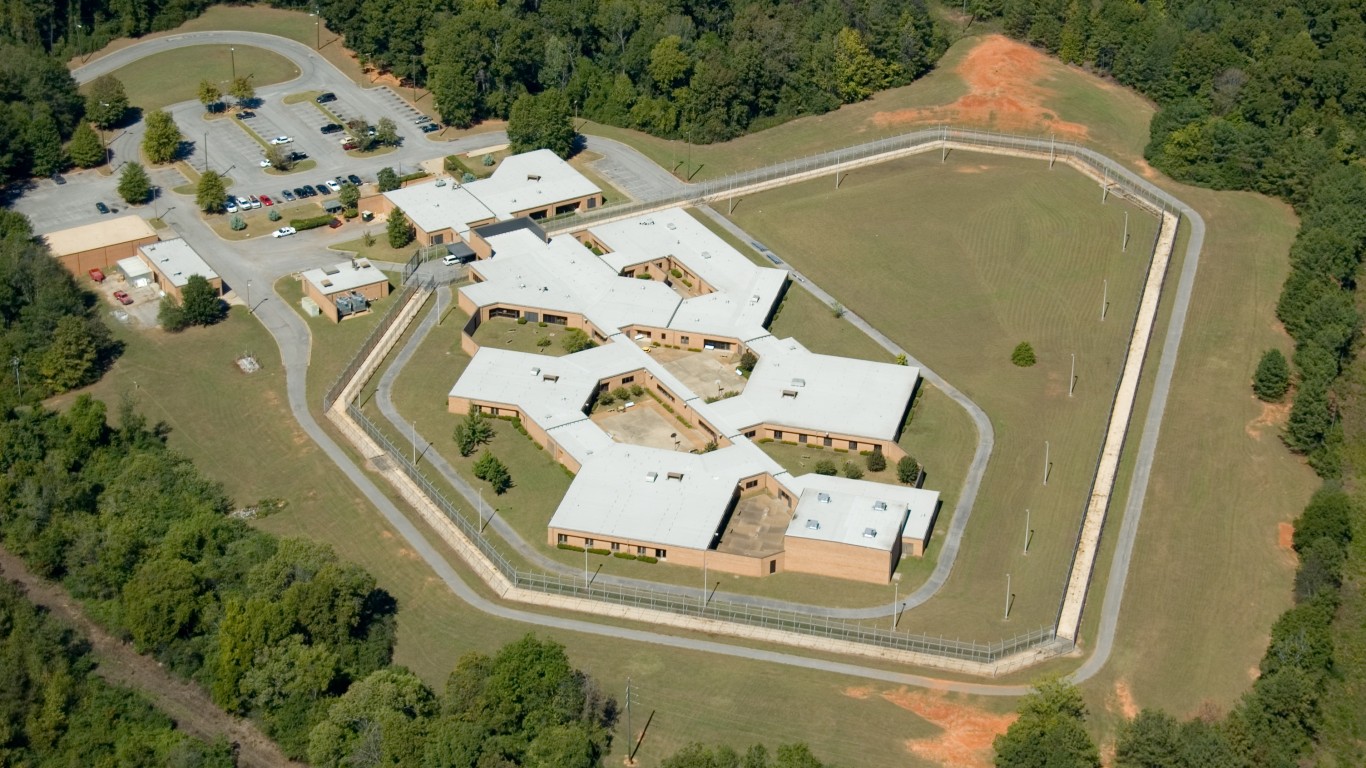
- Spending per Prisoner: $128,000
In 2006, a federal court found that California’s prison system was not providing a level of care required by the constitution, and ordered the state to reduce its prison population to, at most, 137.5% of its intended capacity.
Like many other states, California’s prison population grew exponentially during the war on drugs, when thousands of non-violent prisoners were sentenced to decades in prison for minor drug-related charges.
#6 Colorado
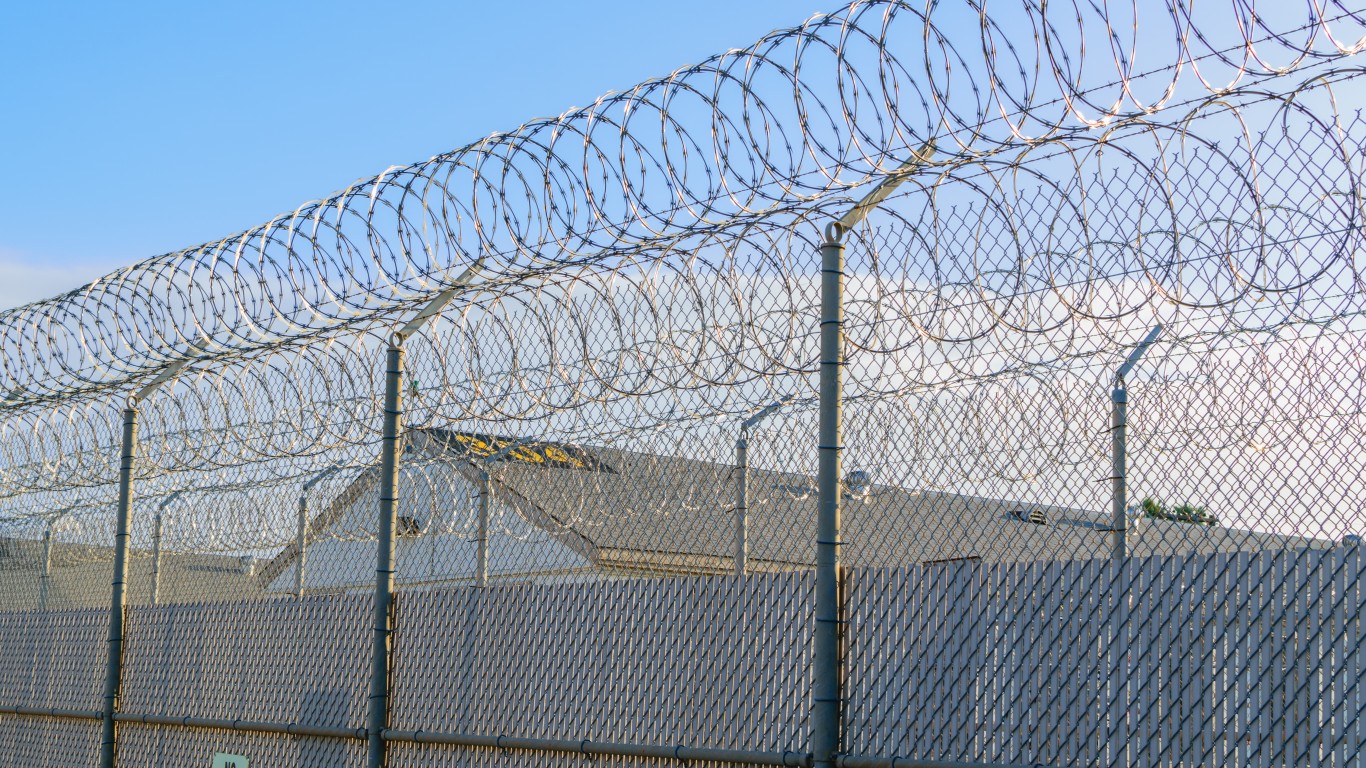
- Spending per Prisoner: $76,000
Colorado has twenty state prisons and seven private prisons and hosts prisoners from other neighboring states. Colorado finally abolished its death penalty in 2020.
#7 Connecticut
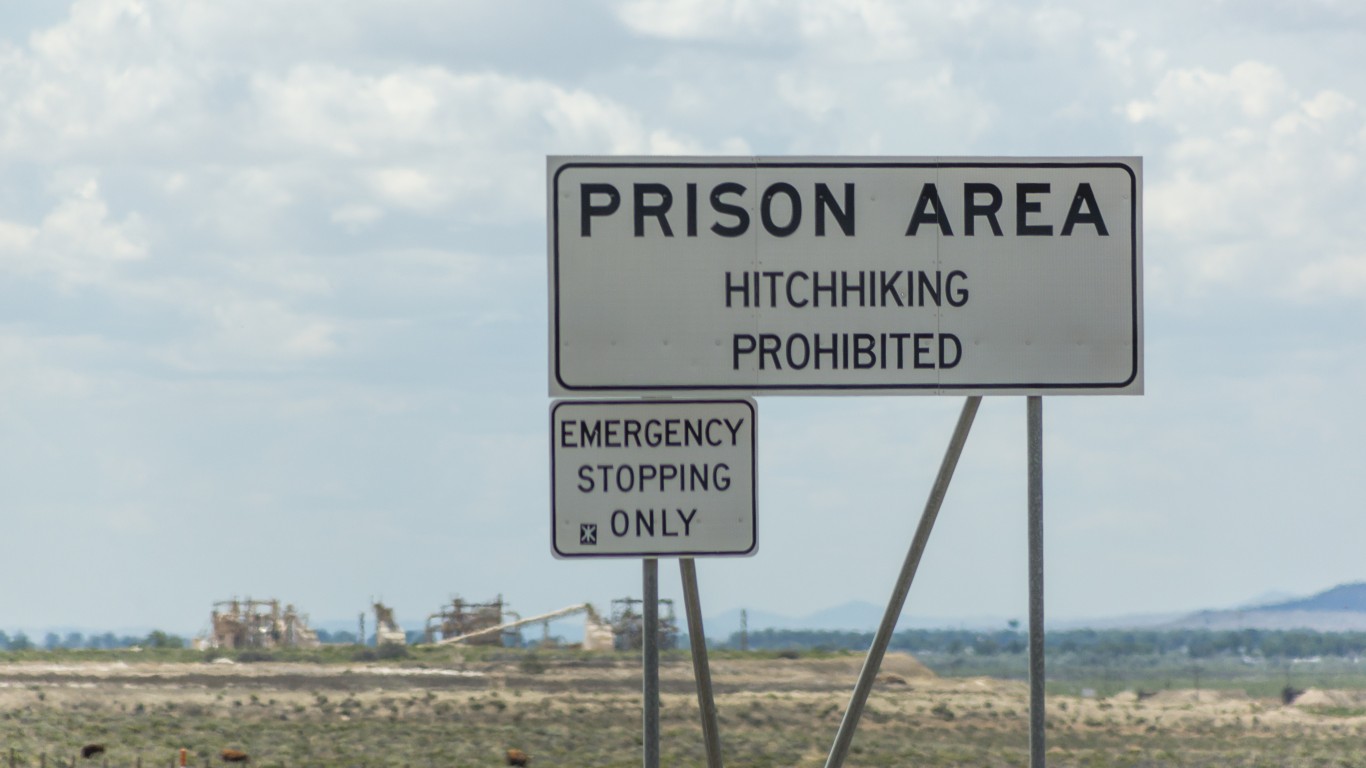
- Spending per Prisoner: $103,000
Connecticut used to keep its prisoners in the tunnels of an abandoned copper mine. Conditions haven’t improved much since then. It maintains 18 prison facilities in the state.
#8 Delaware
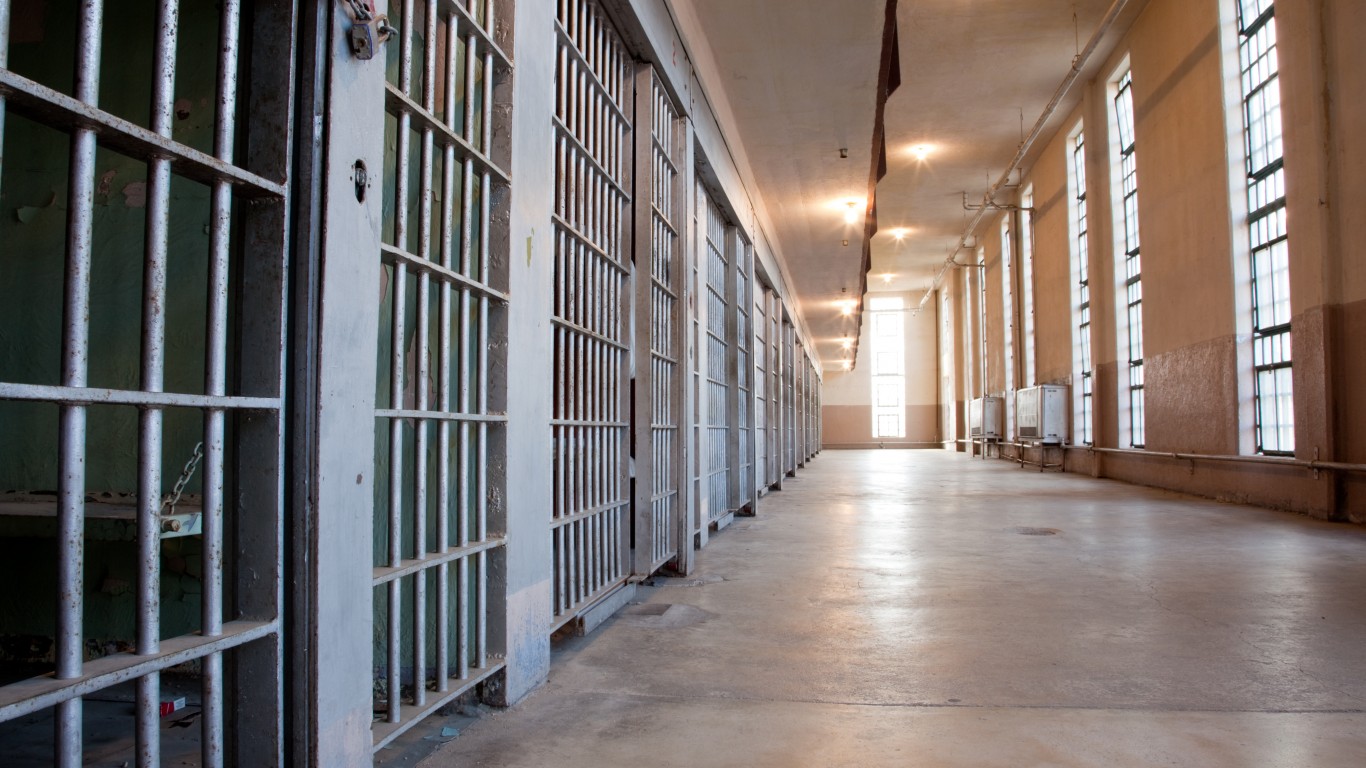
- Spending per Prisoner: $91,000
There are only around 5,000 prisoners in Delaware serving their sentences in one of only four prisons, but there are over 13,000 kept in prison while on probation. There are no local jails in Delaware, so those being held before trial are also kept in state prisons.
#9 Florida
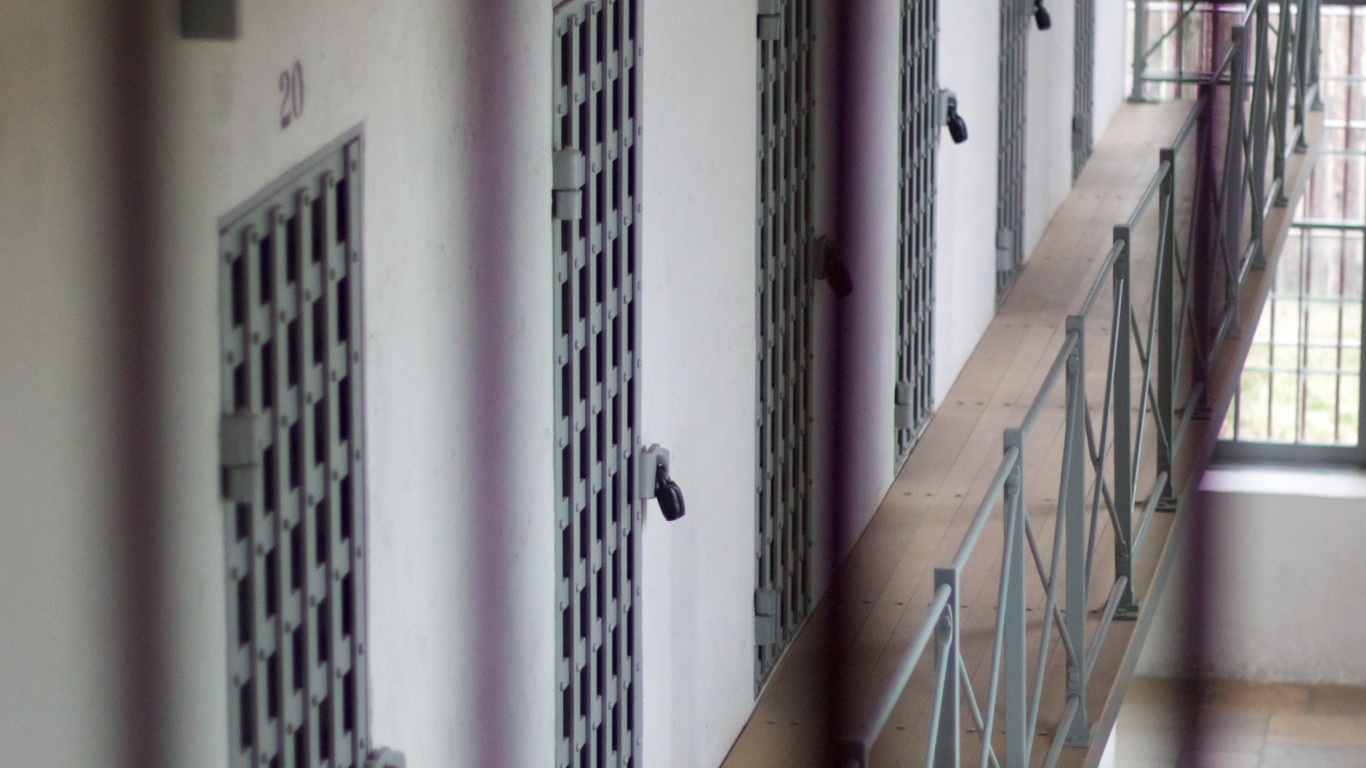
- Spending per Prisoner: $42,000
The Florida prison system is the third largest prison system in the entire country, with over 84,700 inmates and 200,000 people in supervision programs. It operates 33 prison work camps, six road prisons, and forestry camps along with other prison facilities.
Florida used to be one of the main supporters and proponents of convict leasing, in which the state turned prisoners into financial assets and loaned them out to work for corporations and individuals. The prisoners were not paid, but the state was paid a fee. Long after slavery was declared illegal, Florida continued to profit from slave labor.
Florida has faced several lawsuits over its “malicious and sadistic” over-use of pepper spray on prisoners. It was also found to have too many prisoners and subjected its prisoners to extreme sensory deprivation, isolation, and no rehabilitation services.
#10 Georgia
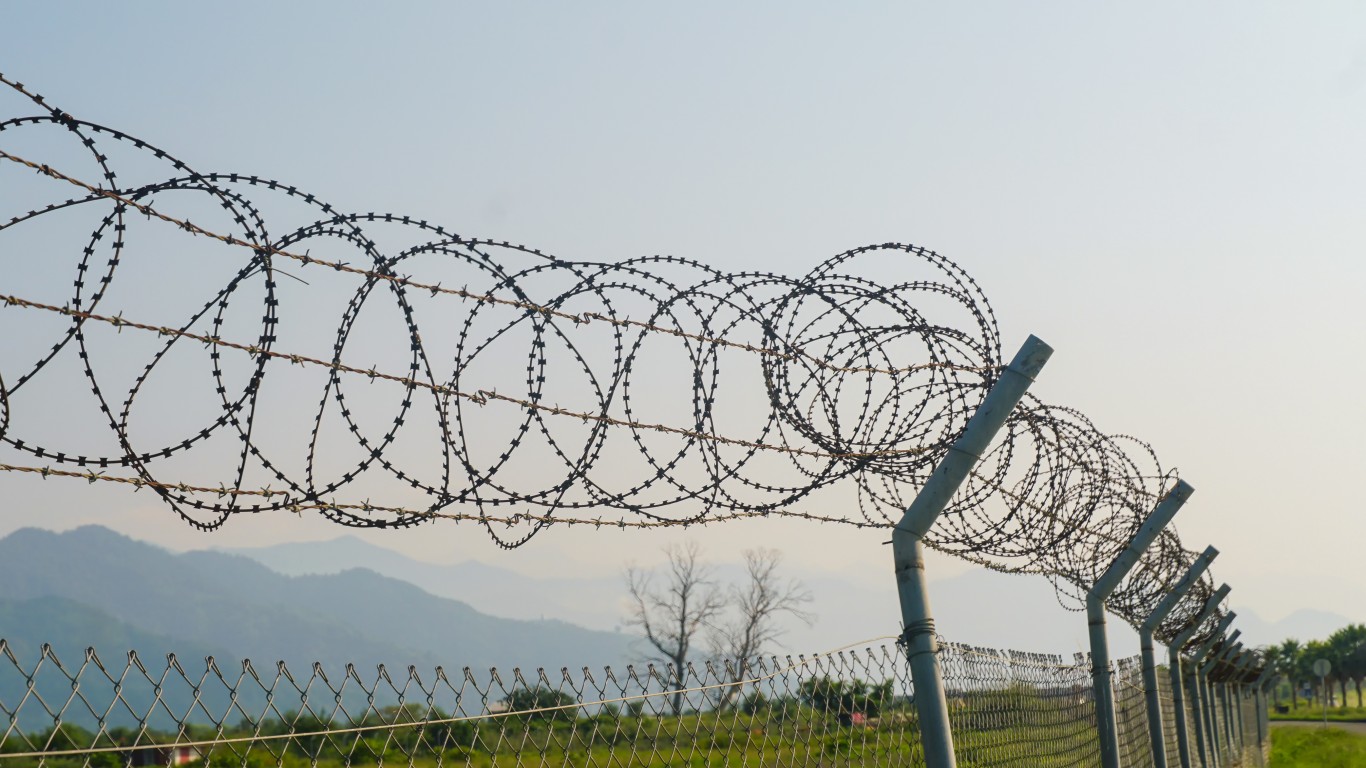
- Spending per Prisoner: $30,000
One of every 13 adults in Georgia is in prison. Like almost every other state on this list, Georgia has experienced significant prison riots and strikes over sanitary conditions, education resources, and prison healthcare.
#11 Hawaii
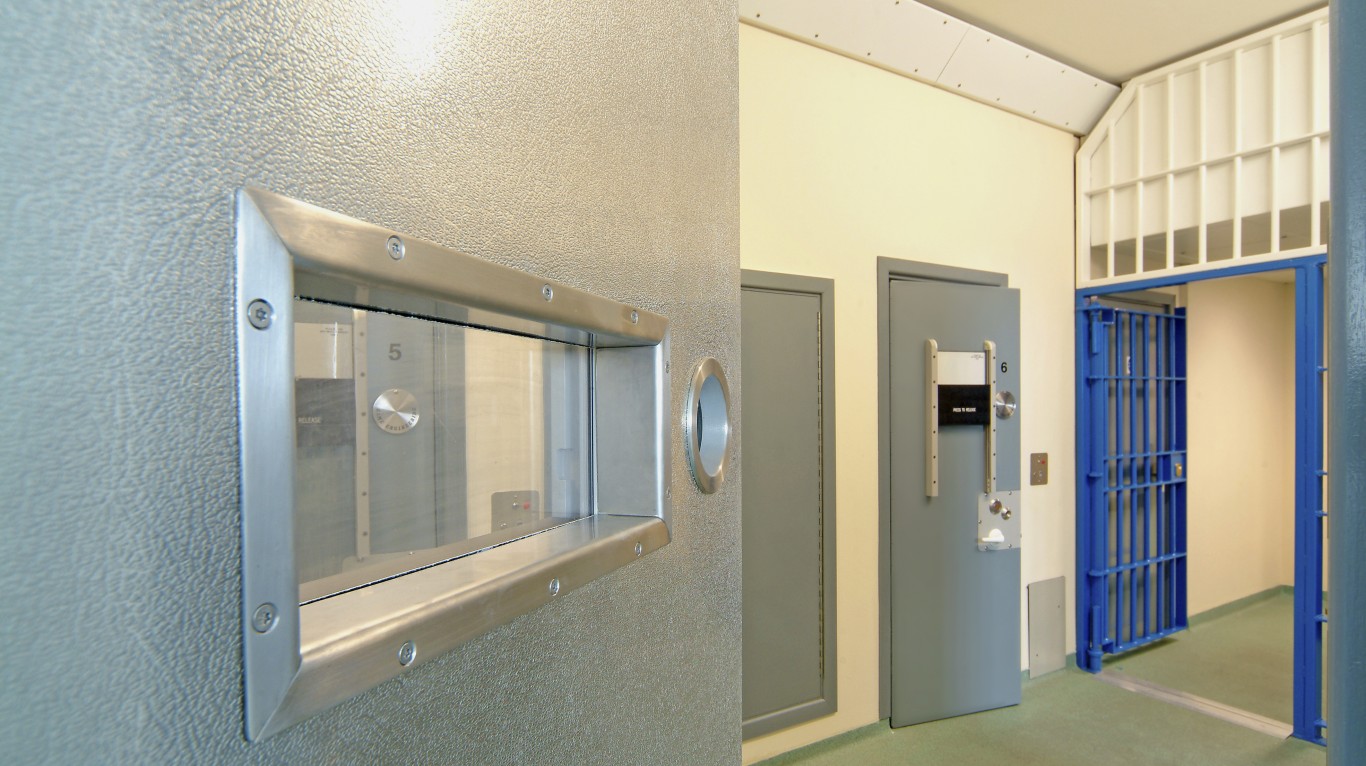
- Spending per Prisoner: $62,000
Most of Hawaii’s male prisoners, about 1,900 inmates, are actually held in Arizona. Hawaii began contracting private prison systems to help with its growing prison population, with most facilities on the mainland. Most prisoners, however, choose to remain in Hawaiian prisons because of their drug treatment programs and educational resources.
#12 Idaho
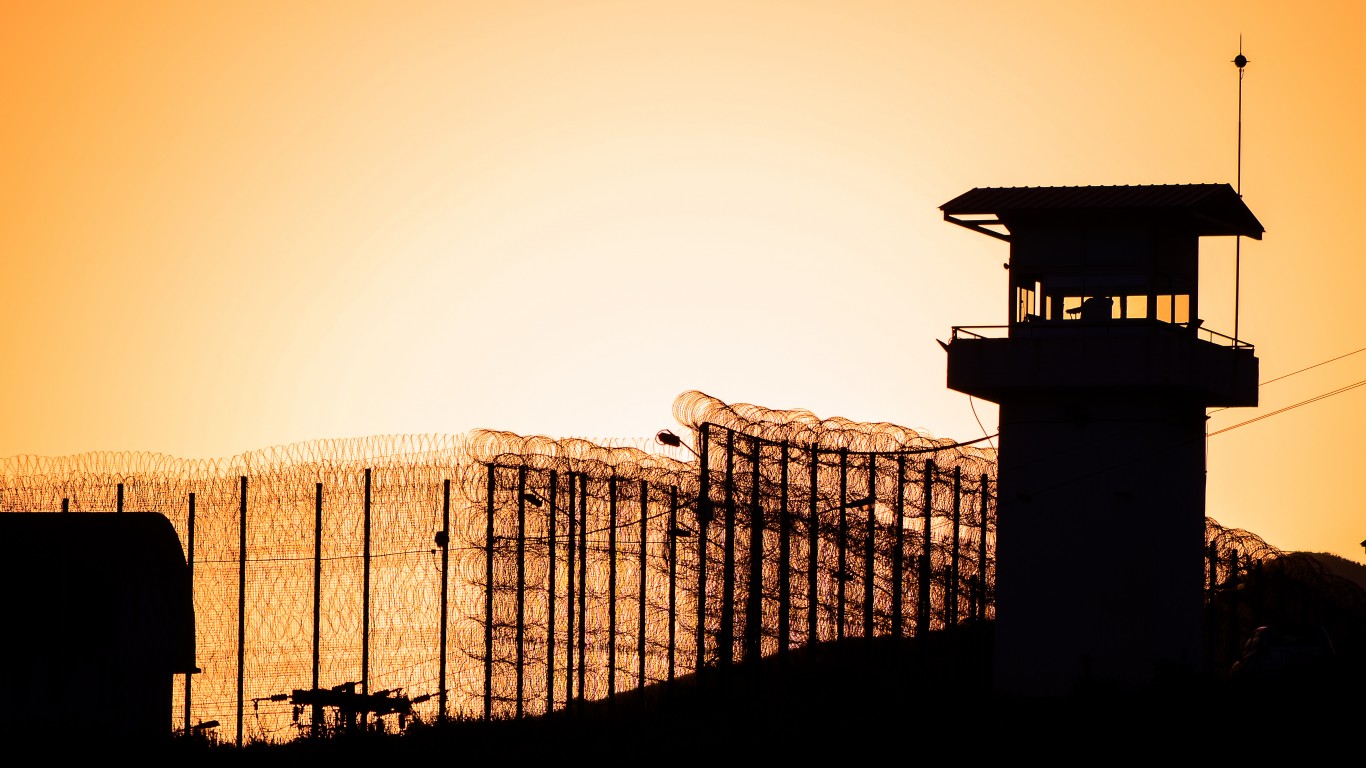
- Spending per Prisoner: $42,000
The private contractor hired by Idaho has a long history of understaffing, violent interactions with inmates, fraud, and incorrect recordkeeping. Overall, Idaho has six full state prison facilities and a work center.
#13 Illinois
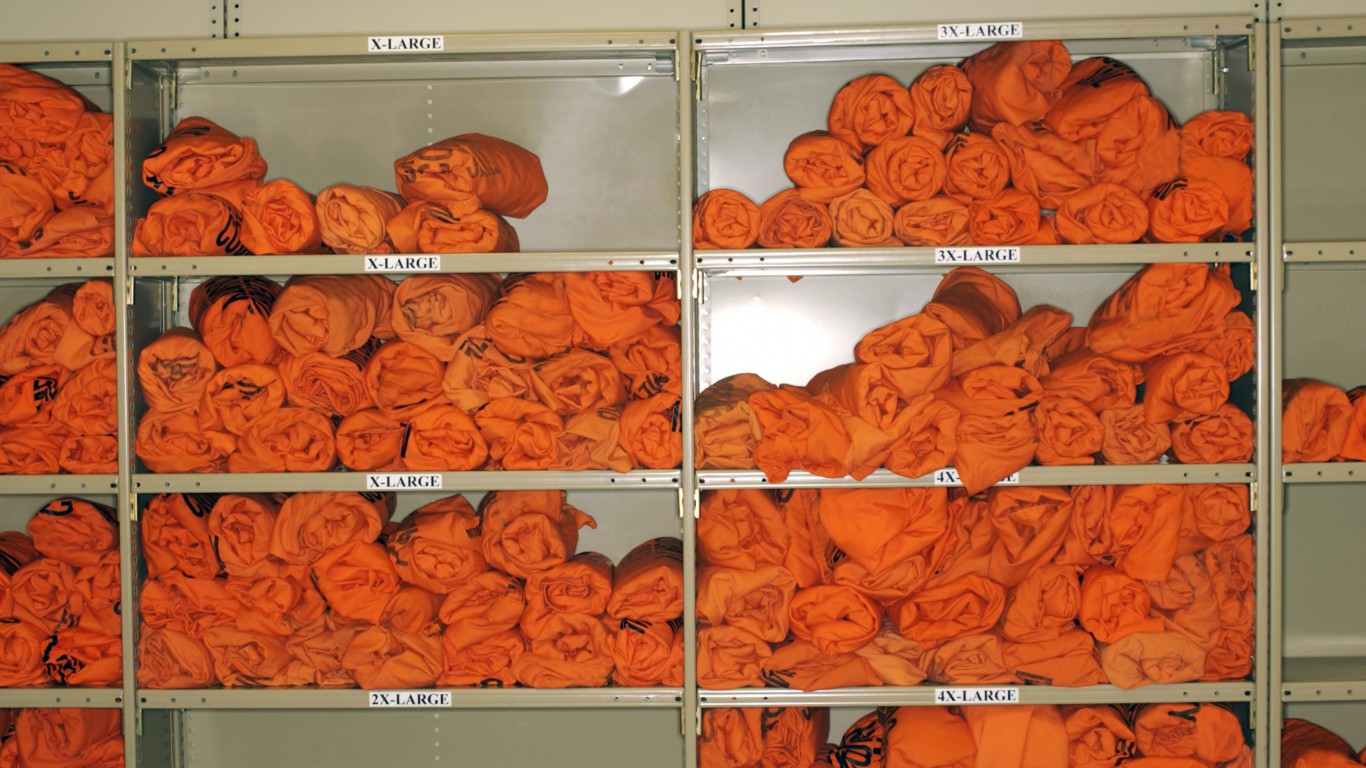
- Spending per Prisoner: $68,000
Illinois operates five prison work camps, a handful of life re-entry programs, a rehabilitation center, and 28 state prisons. Like most other states, juvenile prisoners are processed by a different department in different facilities than those used by adults.
#14 Indiana
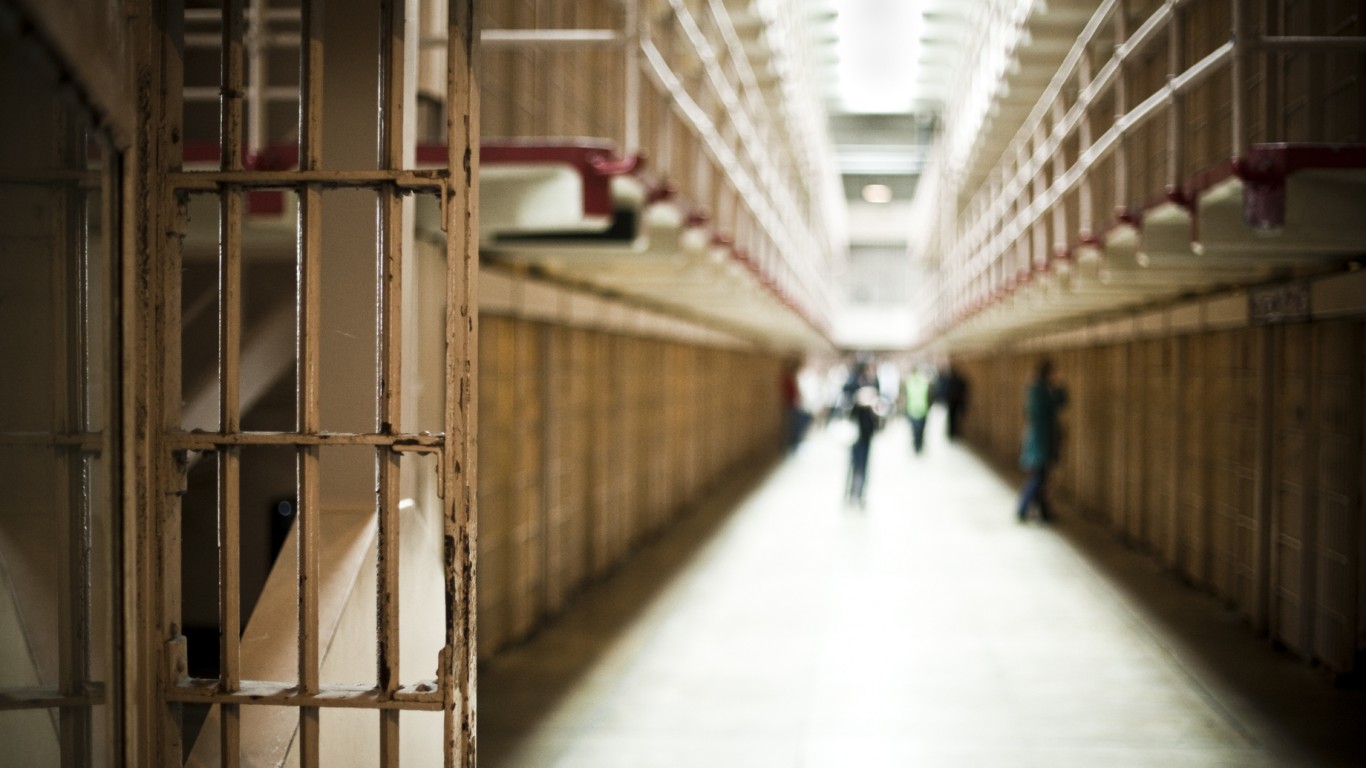
- Spending per Prisoner: $33,000
There are around 27,000 inmates in Indiana’s prison system. Around 2,200 inmates are kept at the Indiana State Prison which was founded way back in 1860. Indiana has 18 adult prison facilities. As in other states, medium and maximum security prisoners provide free labor to the state of Indiana.
#15 Iowa
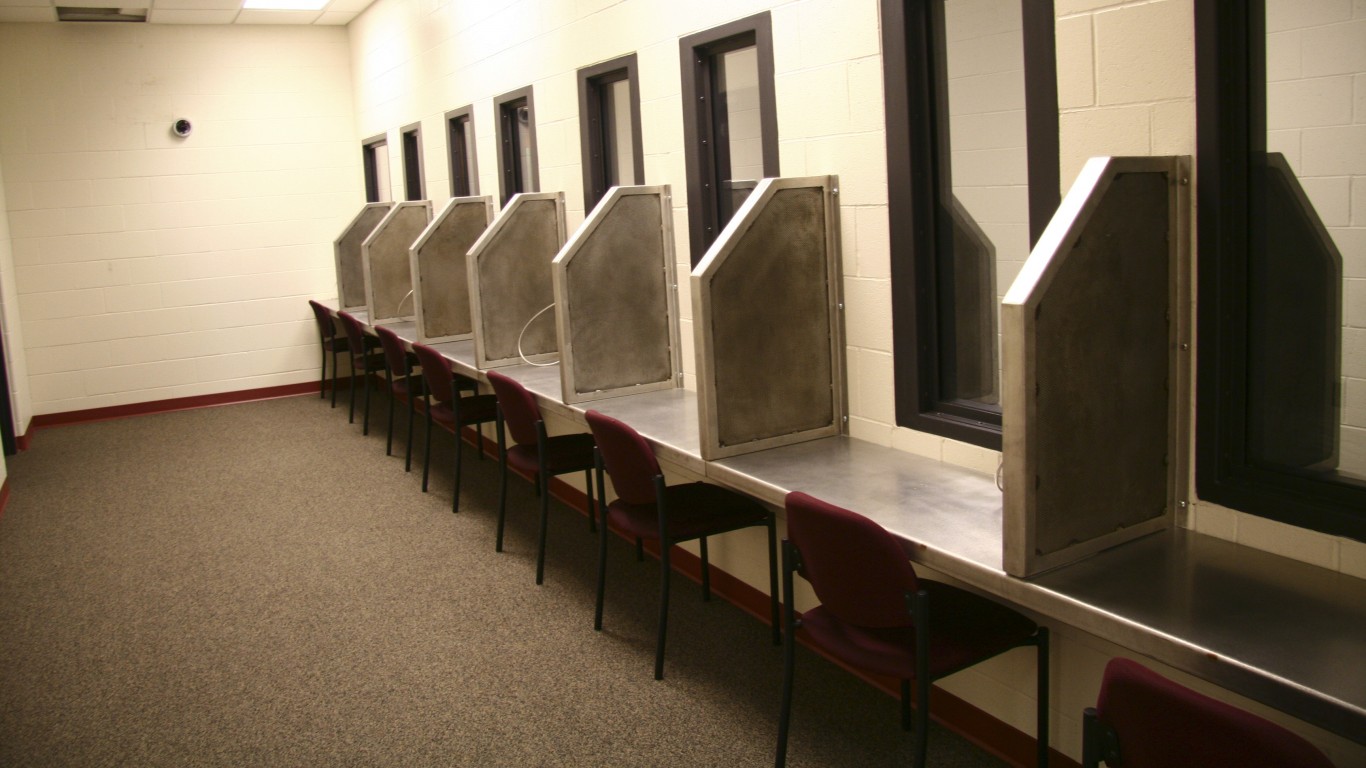
- Spending per Prisoner: $42,000
Iowa does not contract with any private prisons and operates nine prison facilities in the state. It should be noted that there is no official differentiation between the names and types of facilities in the United States. Whether a facility is called a correctional penitentiary, prison, or detention center, they are all the same.
#16 Kansas
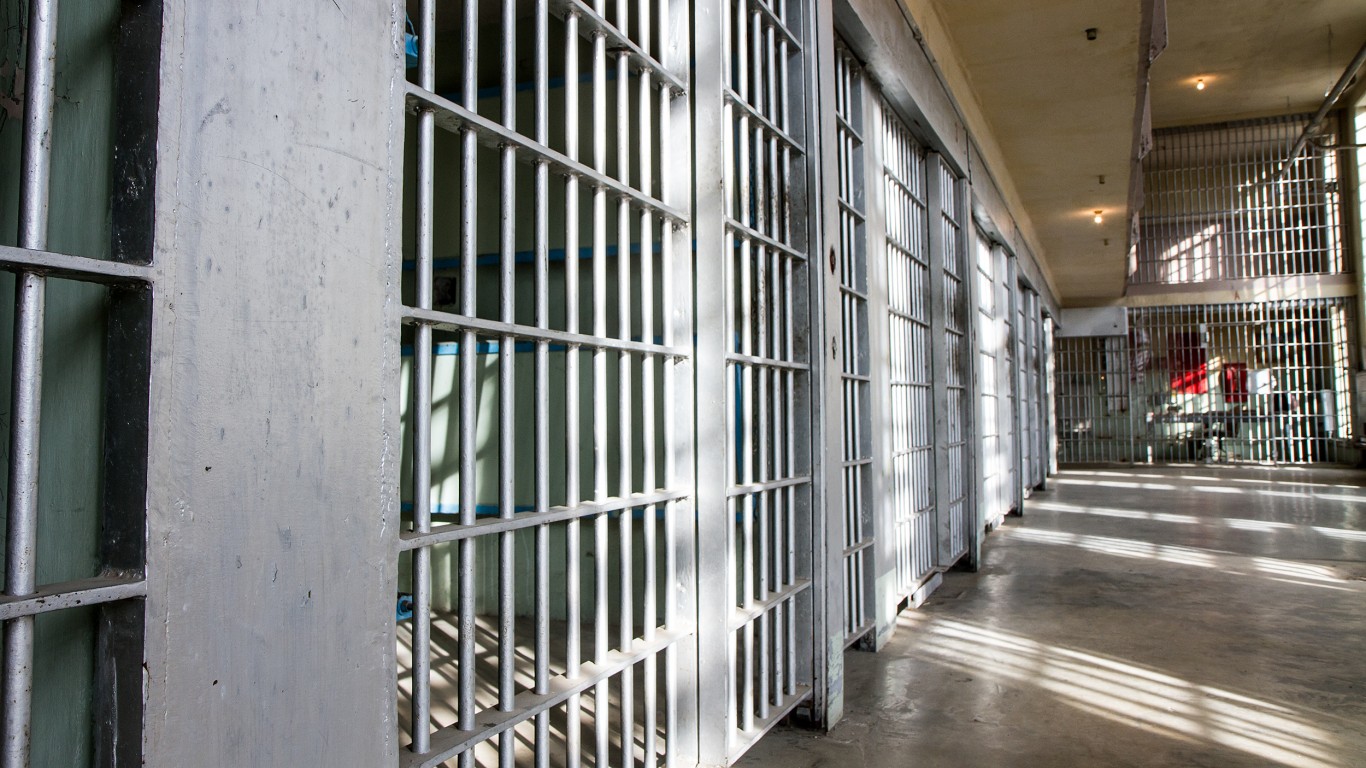
- Spending per Prisoner: $49,000
There are eight adult prisons in Kansas, one juvenile facility, and three satellite facilities. Kansas profits from prison labor like many other states, producing park equipment, clothing, and office furniture. It pays prisoners a tiny amount of money for their time and undercuts the business of companies in the state. Kansas has suffered staff shortages for years and contracted private companies to help, including moving hundreds of prisoners to Arizona.
#17 Kentucky
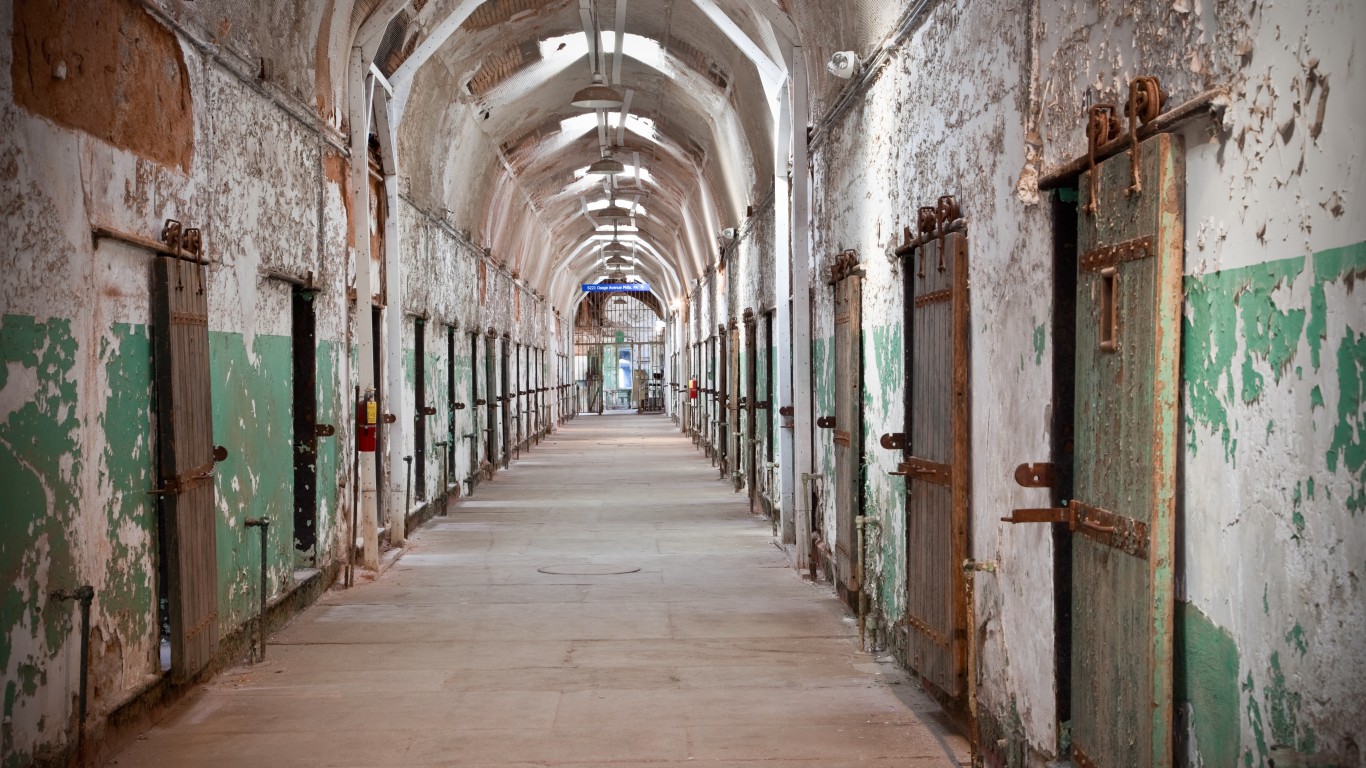
- Spending per Prisoner: $36,000
Kentucky has worked with a handful of private prisons. It closed the Marion Adjustment Center in 2013, which was operated by the Corrections Corporation of America, now known as CoreCivic (NYSE:CXW). This decision saved the state millions of dollars in expenses.
The Otter Creek Correctional Center was a private prison that was closed in 2012 after numerous allegations of sexual abuse of inmates by staff, medical malpractice and neglect, and bad security were not resolved. Republican Governor Matt Bevin announced in 2019, that he would partner with CoreCivic to reopen the prison.
Finally, the Lee Adjustment Center was a private prison run by CoreCivic that suffered from overcrowding. It was closed in 2010, but Kentucky reopened the prison in 2018, allowing CoreCivic to run the facility again.
#18 Louisiana
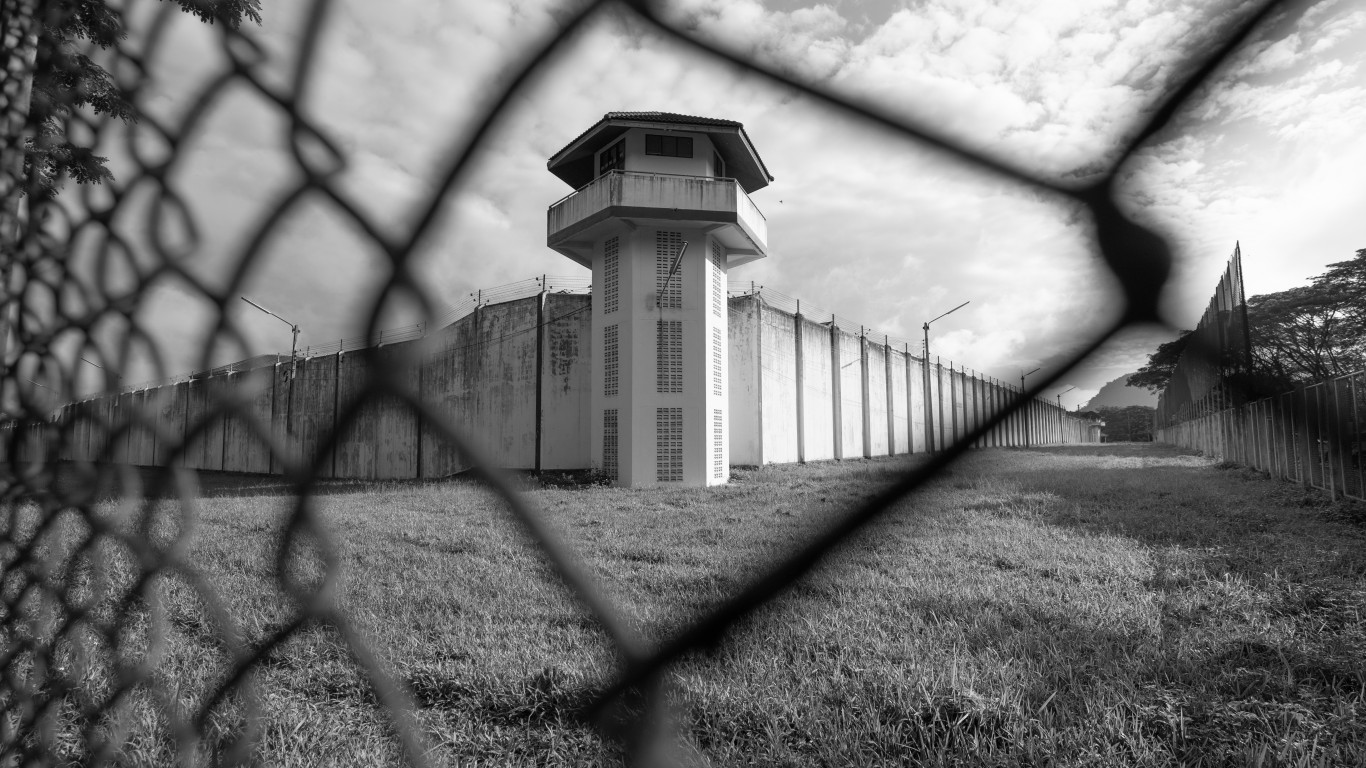
- Spending per Prisoner: $25,000
Even though the United States has one of the highest incarceration rates in the entire world, Louisiana outpaces every other state in the country with 1,000 inmates per 100,000 people in the state. This means it has a higher incarceration rate than every other country on the planet except El Salvador.
In a stroke of pure maliciousness, Louisiana limited the compensation that could be paid to prisoners who were wrongfully convicted. Those who were incarcerated wrongfully can only be paid $15,000 for each year they were in prison, up to a maximum of $250,000. This amount must be paid in ten equal annual payments, which means that some released prisoners have died before they received their full compensation.
#19 Maine
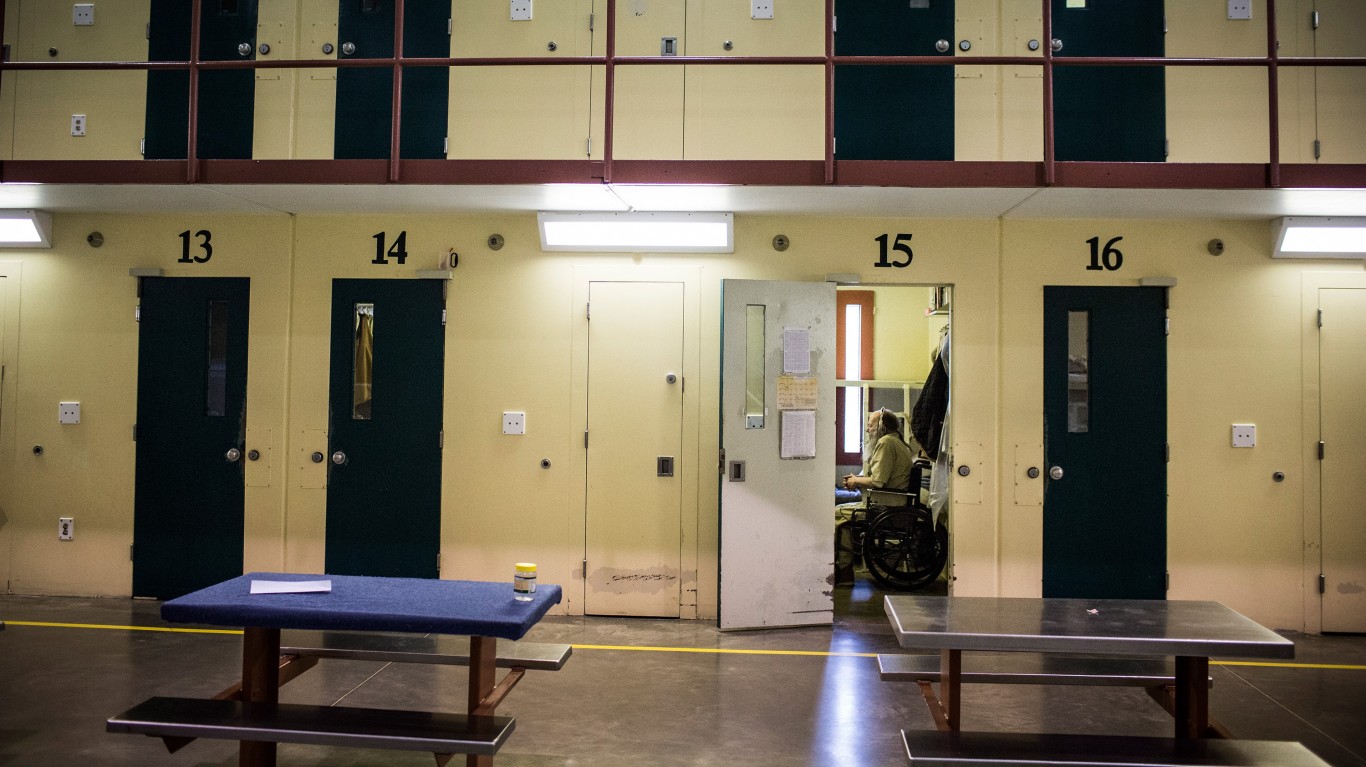
- Spending per Prisoner: $117,000
Maine has one of the smallest prison populations in the country, with around 2,200 prisoners and six adult detention facilities. The Maine State Prison is a maximum-security facility, named after the original that was founded in 1824.
#20 Maryland
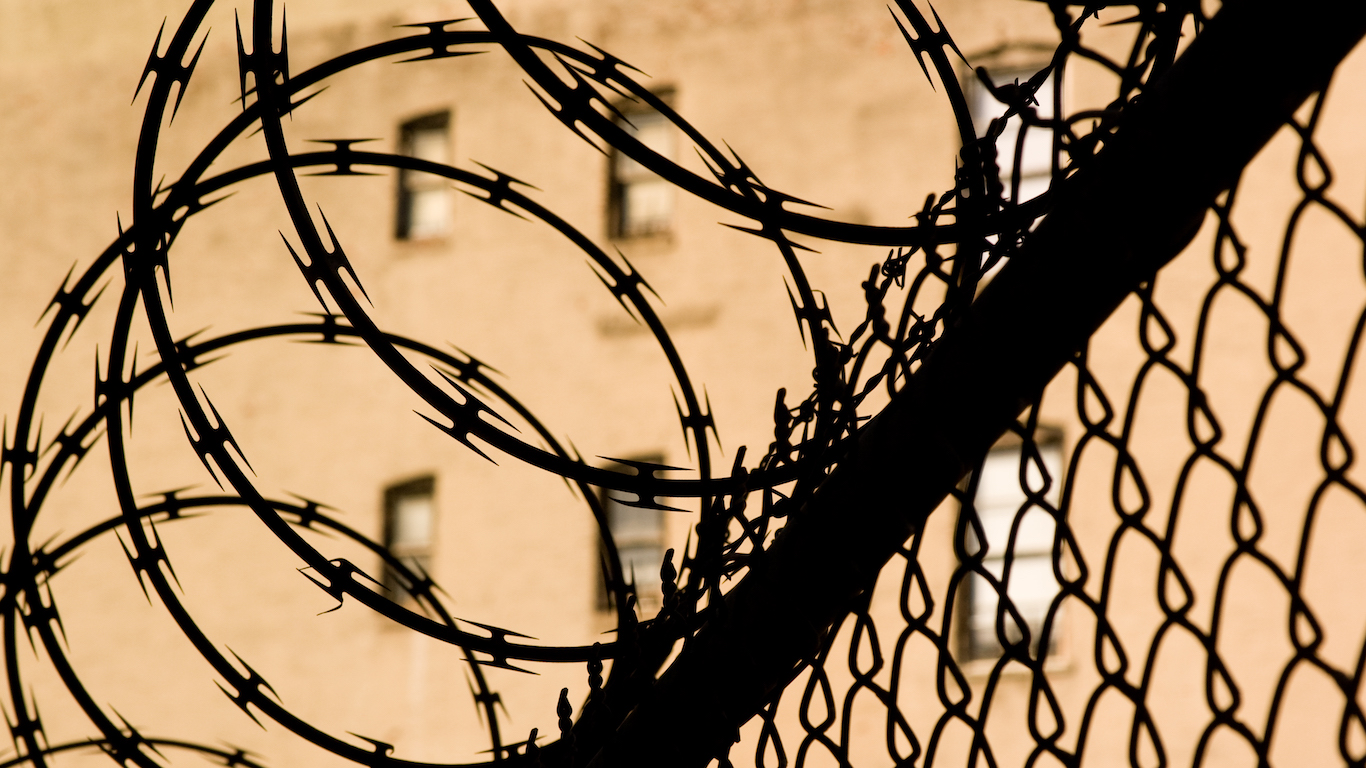
- Spending per Prisoner: $114,000
Maryland prisons are probably most well-known for the gangs that control and operate within them. The Black Guerilla Family and the Dead Man Incorporated gangs had officers and organized groups in all of Maryland’s prisons and were very successful in orchestrating and coordinating their members and smuggling contraband into many prisons.
#21 Massachusetts
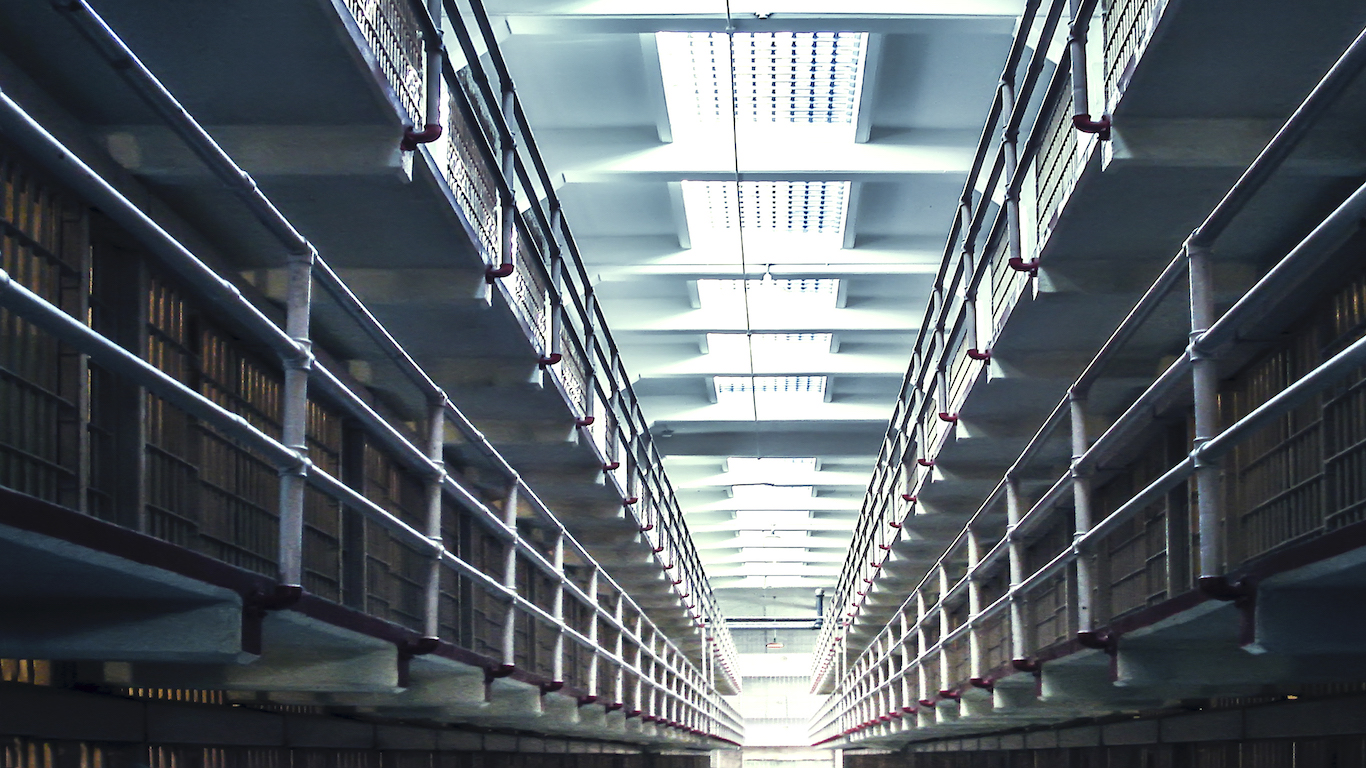
- Spending per Prisoner: $307,000
Massachusetts has around 8,200 prisoners, and the state has a planned, designed occupancy of 101%. The suicide rate in Massachusetts prisons is one of the highest in the country, and the United States Department of Justice says that Massachusetts has engaged in a pattern of resisting the rights of the Eighth Amendment and intentionally refuses to provide proper supervision, mental health services, and places those in mental health risk in restrictive housing and willfully violates their constitutional rights.
Massachusetts spends the most per prisoner out of all U.S. states.
#22 Michigan
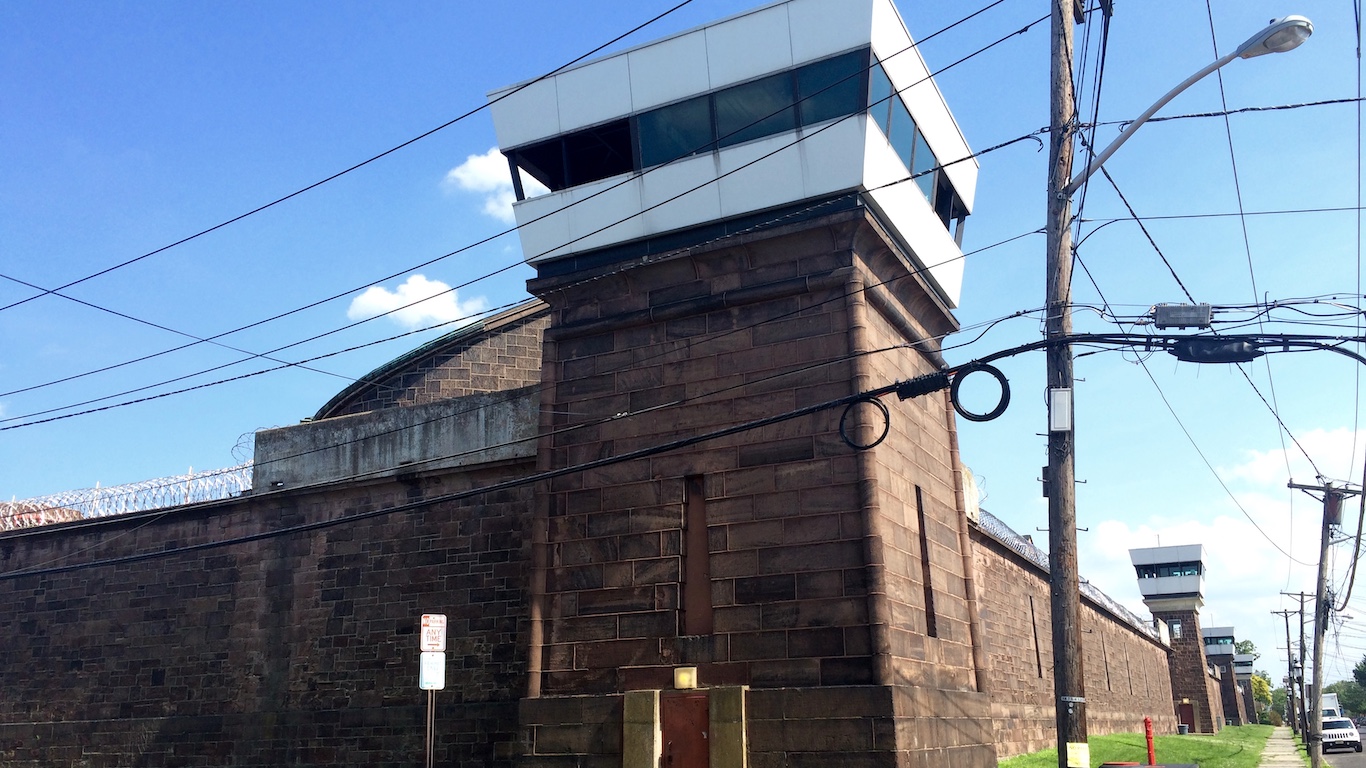
- Spending per Prisoner: $65,000
There are around 41,000 prisoners in Michigan in 31 adult prison facilities. There are more than 71,000 parolees that the Michigan Department of Corrections also supervises and manages.
#23 Minnesota
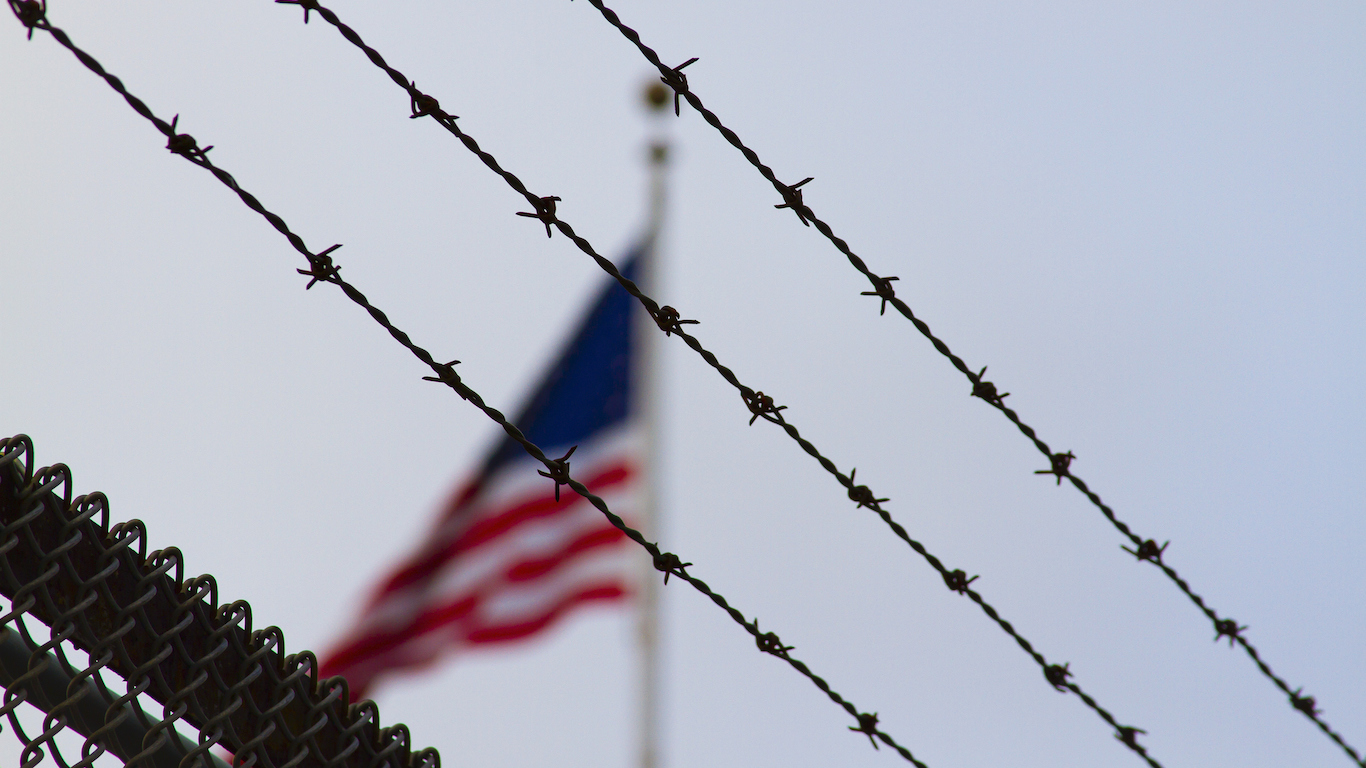
- Spending per Prisoner: $80,000
Minnesota does not currently contract with any private prison contractors or prisons. It only had one private prison which was closed in 2010, the Prairie Correction Facility. It was too far from any hospitals and cities where families could visit from, so local lawmakers proposed new legislation in 2023 that would ban the state from using privately owned facilities for housing prisoners.
#24 Mississippi
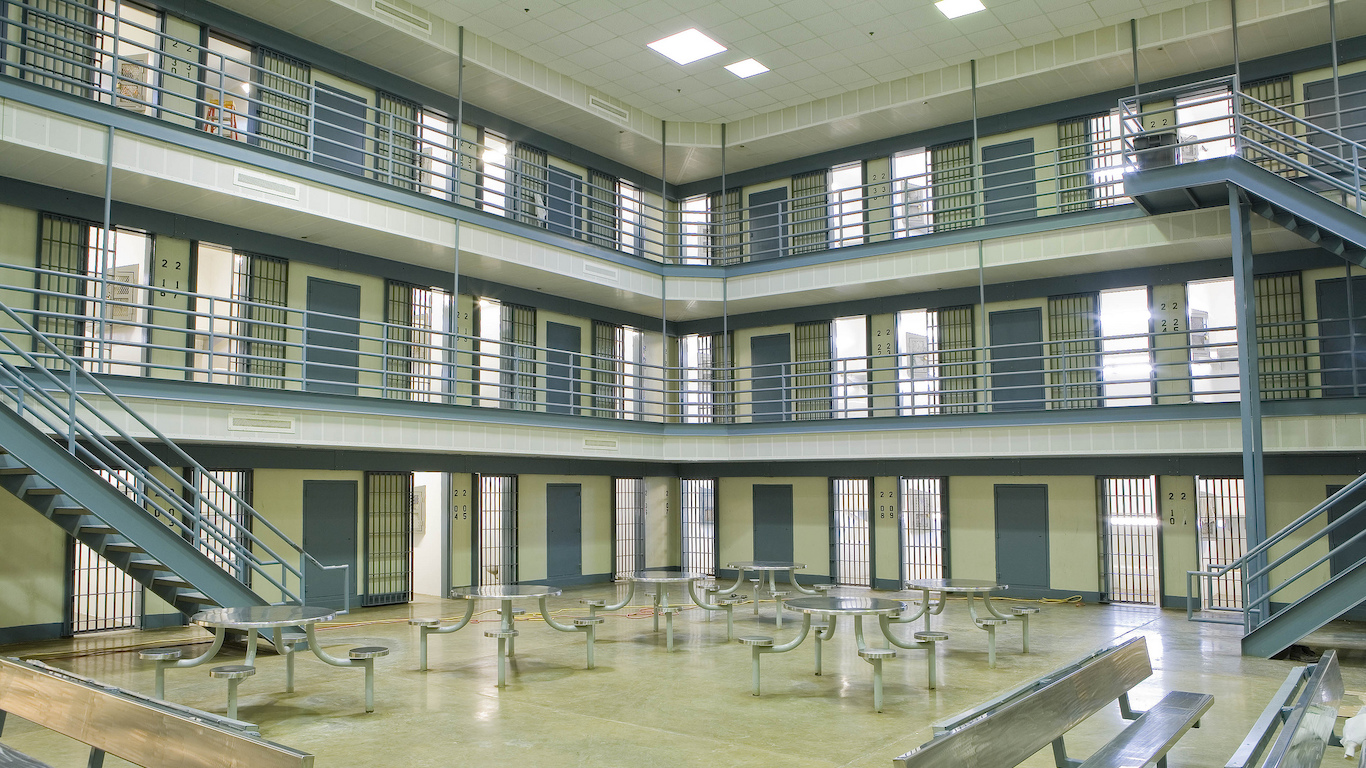
- Spending per Prisoner: $24,000
During the war on drugs, the incarcerated population of Mississippi skyrocketed, becoming one of the largest prison populations in the country, even as crime rates fell within the state. The prison population more than doubled between 1995 and 2007. As with other states, a disproportionate number of African Americans and other minorities were incarcerated as a result of the misguided war on drugs.
Mississippi works with six private prisons, and numerous lawsuits filed against both the state and the private prisons have forced them to reform incarceration policies, including discontinuing solitary isolation practices.
#25 Missouri
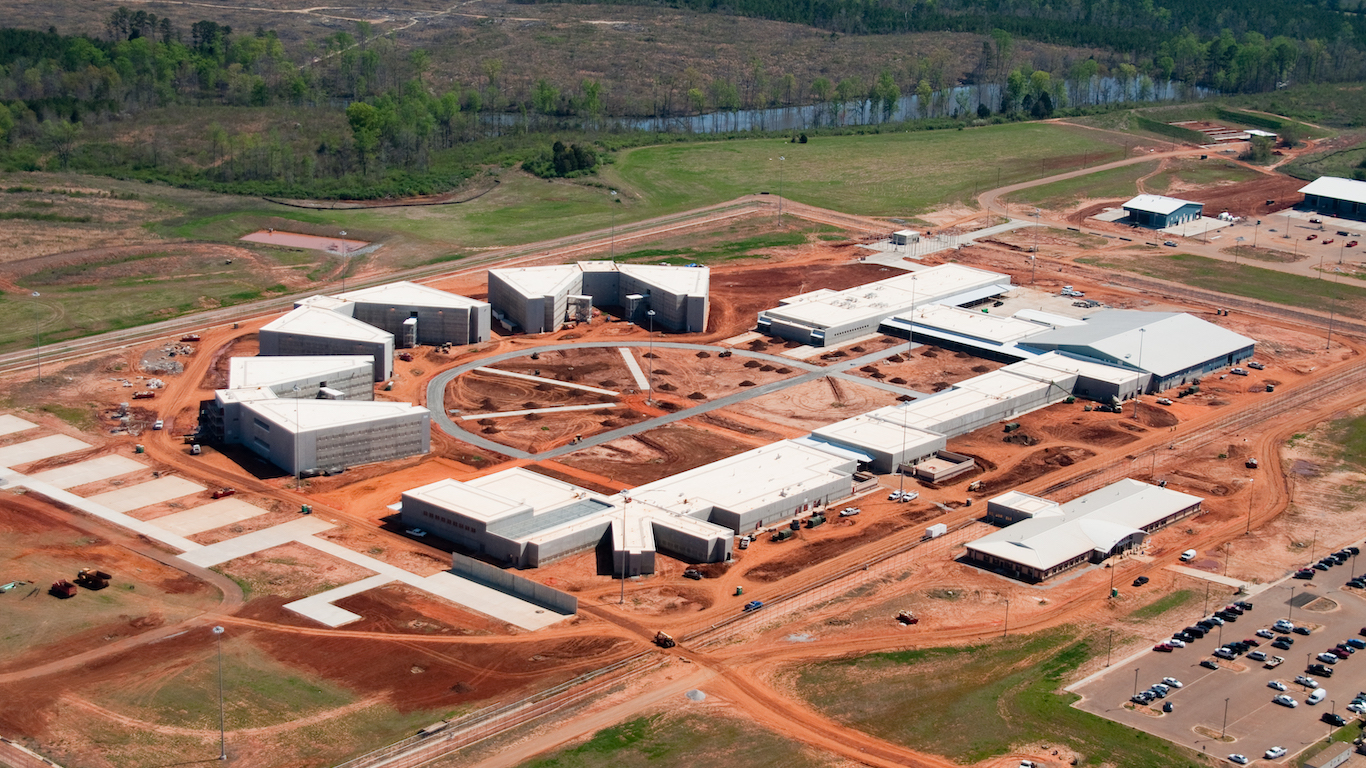
- Spending per Prisoner: $32,000
Missouri has faced numerous issues of harassment and other human rights abuses. From 2012 to 2016 alone, the state paid more than $7.5 million in court-ordered fines. There has been rampant sexual harassment, racial harassment, and a culture of intimidation and violence by employees against other prison employees and prisoners.
Aramark (NYSE:ARMK) provides the food in all of Missouri’s prisons, as it does for many other states. However, several reports have shown that the quality of the food provided by the company has dropped dramatically, and frequently withholds items such as cleaning supplies, salt, and pepper.
#26 Montana
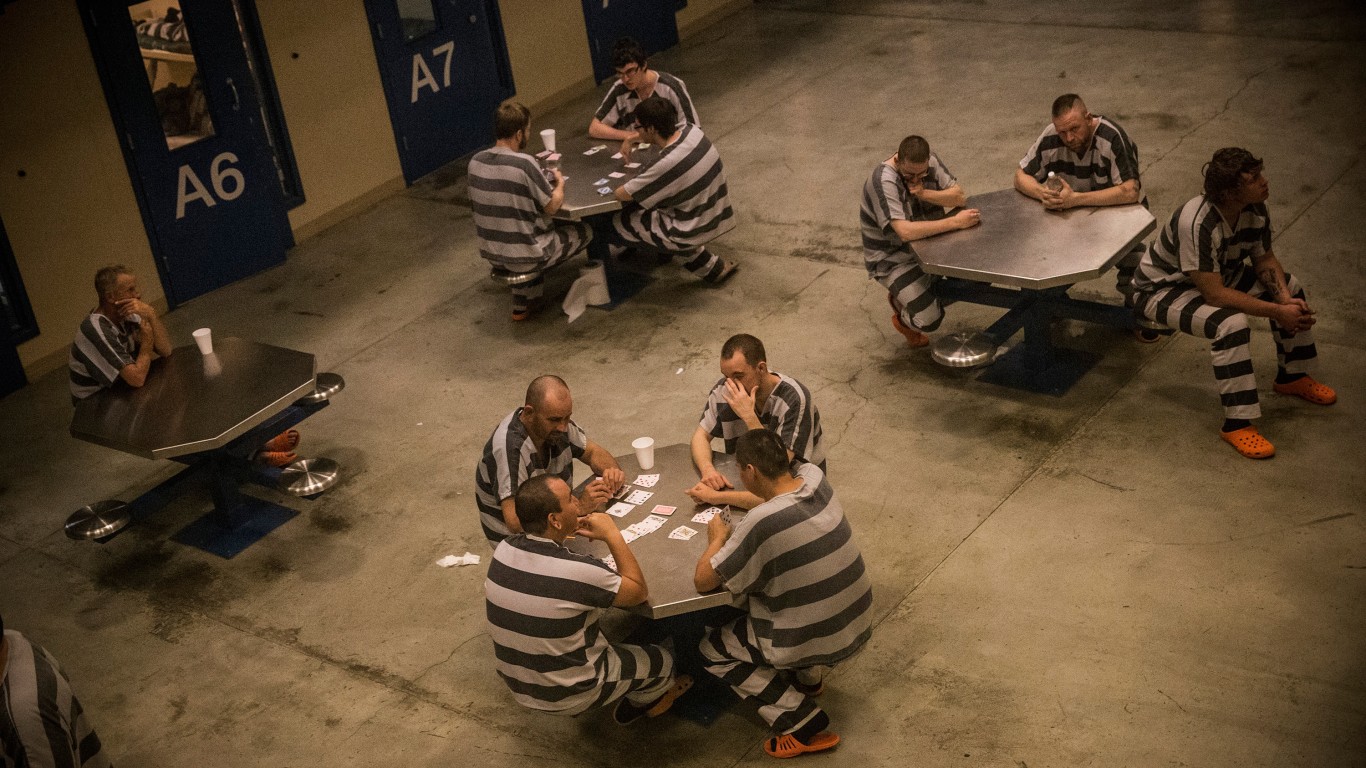
- Spending per Prisoner: $64,000
Montana has five prison facilities and eleven community correction facilities. The Crossroad Correctional Facility is the only adult prison facility operated by a private contractor, Corrections Corporation of America. The first registered medical cannabis provider in Montana died in this facility after not receiving appropriate medical care.
#27 Nebraska
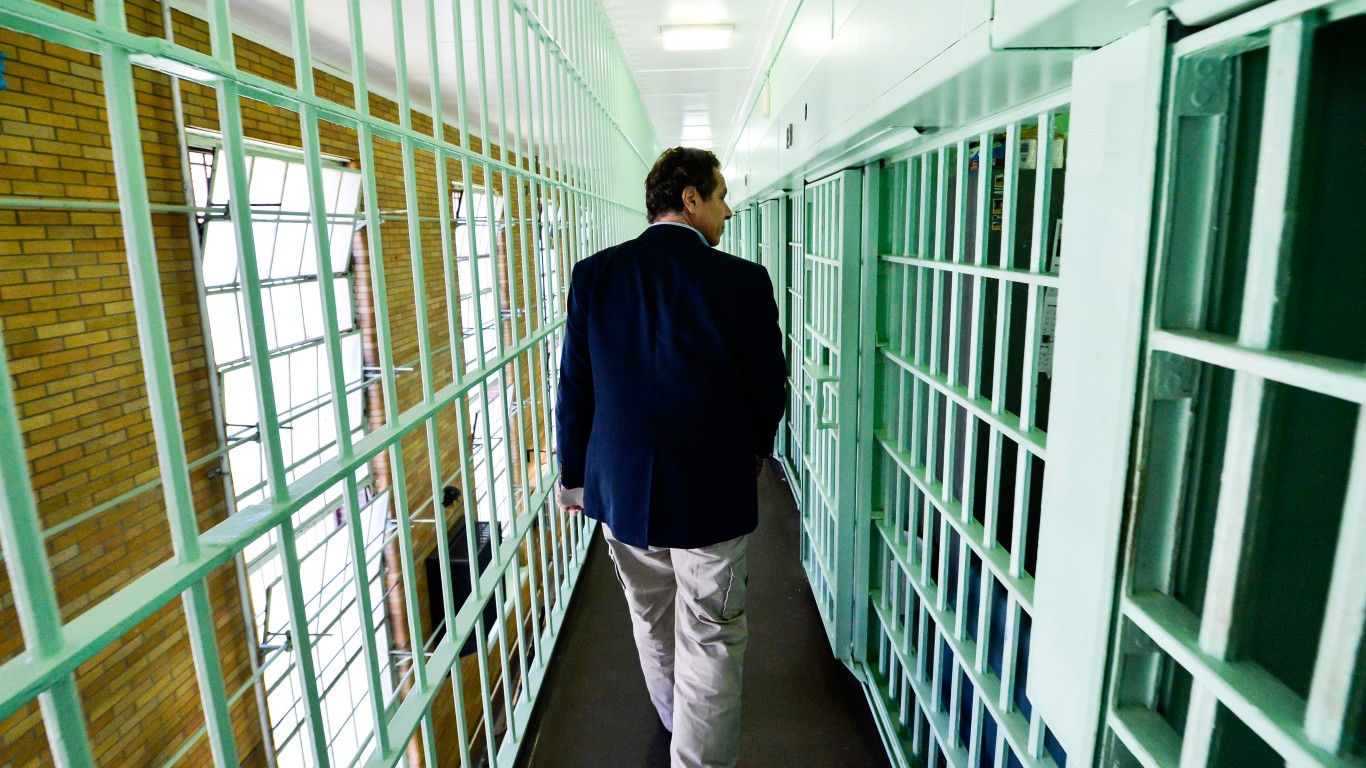
- Spending per Prisoner: $88,000
Nebraska has nine prison facilities with over 5,000 total incarcerated people. Youth correctional locations are now operated by the Nebraska Department of Health and Human Services. Nebraska is one of only nine states in which all the prison facilities are accredited by the American Correctional Association, though the value of that accreditation is the subject of ongoing debate.
#28 Nevada
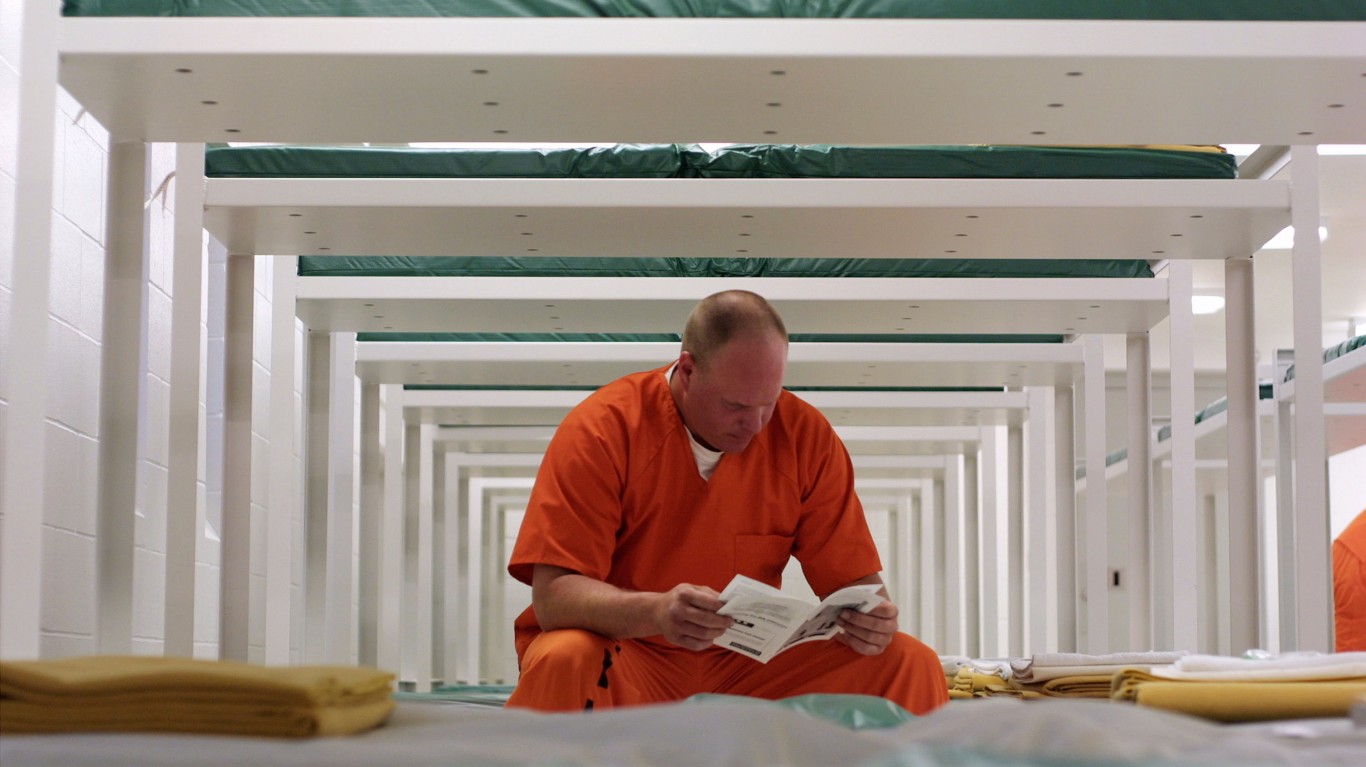
- Spending per Prisoner: $40,000
Nevada has seven major prisons, nine conservation prison camps, one prison boot camp, and two transition housing centers. Nevada opened a new execution chamber at the Ely State Prison in 2016.
#29 New Hampshire
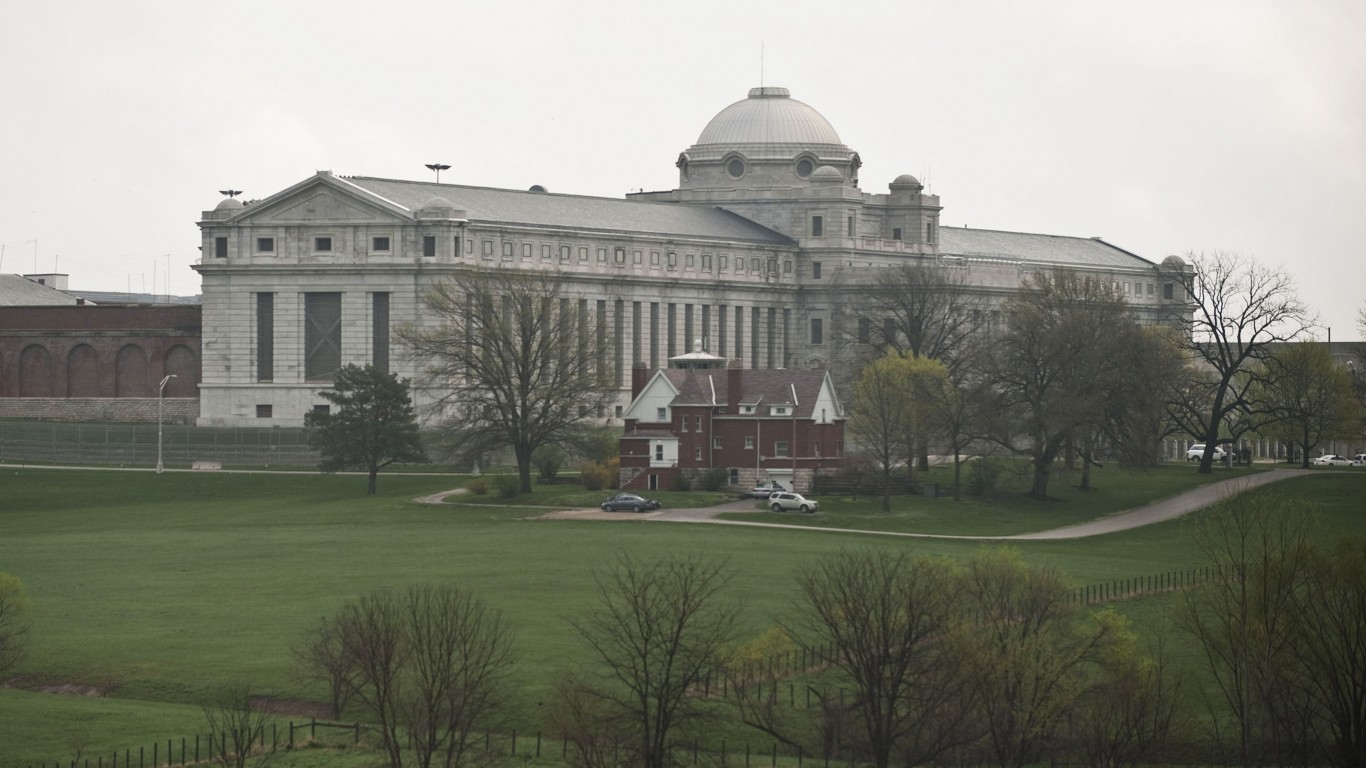
- Spending per Prisoner: $74,000
New Hampshire has around 2,700 prisoners in three prison facilities and over 15,000 people on parole or probation. The oldest prison in New Hampshire was opened in 1878.
#30 New Jersey
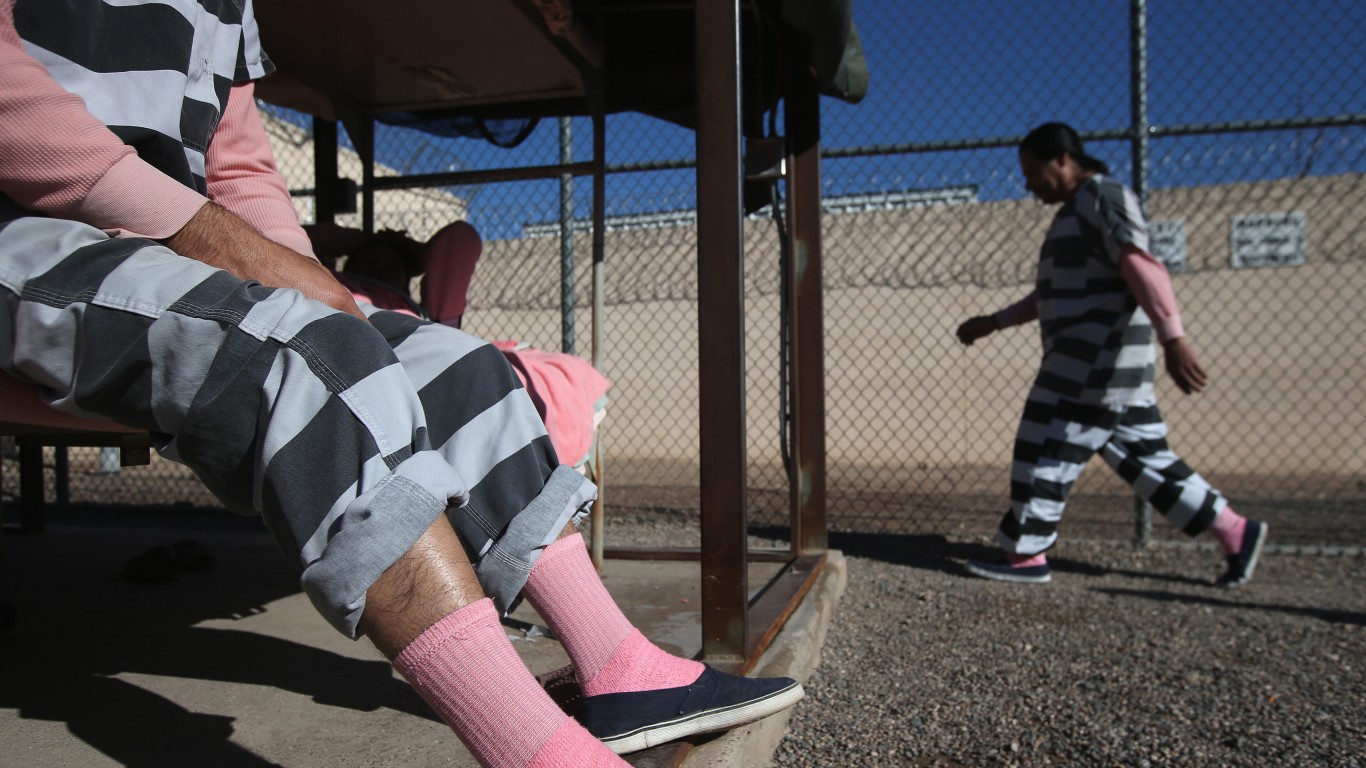
- Spending per Prisoner: $133,000
New Jersey has nine prison facilities and many other locations with a combined capacity of 20,000 prisoners and a daily average of around 18,894 people who are currently incarcerated.
New Jersey abolished the death sentence in 2007.
#31 New Mexico
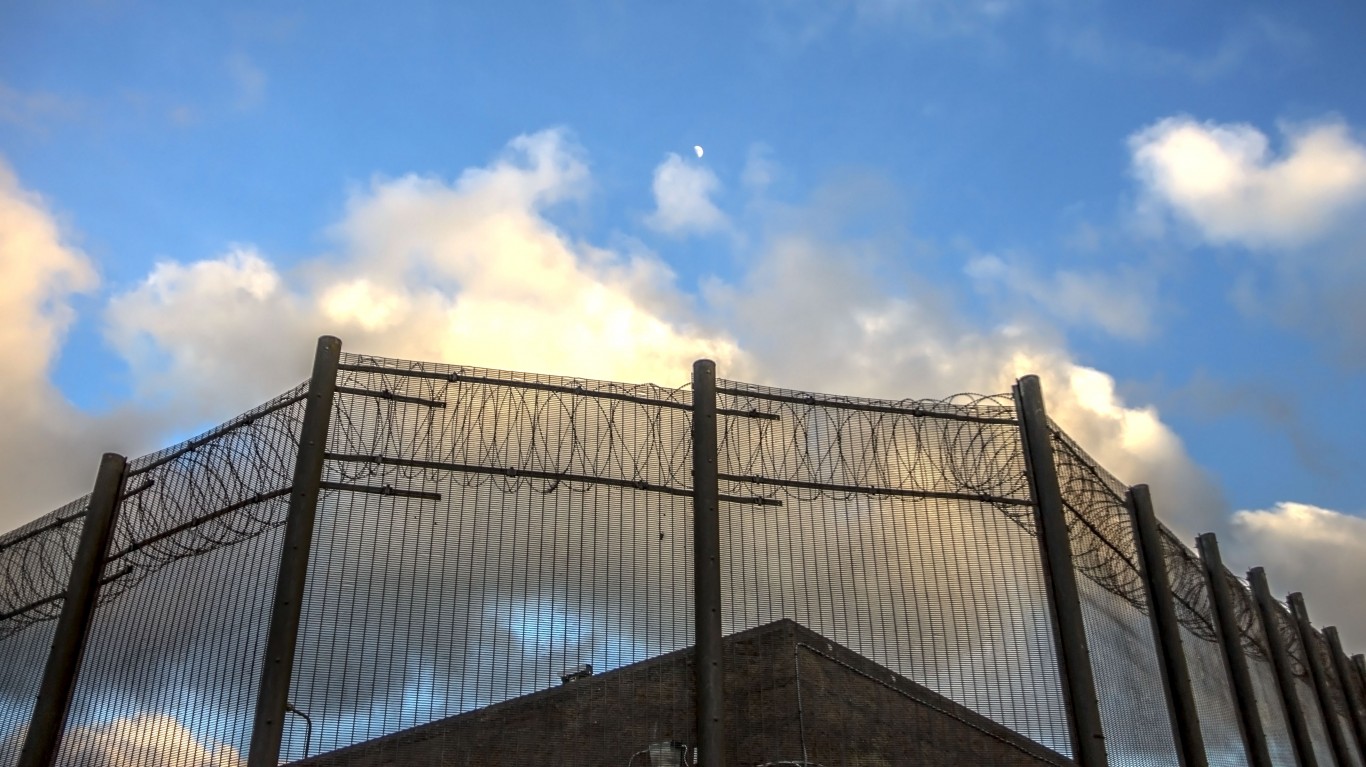
- Spending per Prisoner: $113,000
New Mexico has 11 prison or correctional facilities. The most violent prison riot in United States history happened in New Mexico at the New Mexico State Penitentiary in February of 1980. Thirty-three inmates died and two hundred had serious injuries.
The riot was the result of overcrowding, insufficient prison resources, and problems that could have been easily resolved. In fact, experts agree that the riot was predictable and could have been prevented with adequate prison care.
Prisoners were kept in crowded and unsanitary cells. On the night of the riot, the prison had a capacity of only 963 people but had over 1,156. The food was bad, and cockroaches and mice infested the food and prison area. It was one of the filthiest prisons in the entire country.
#32 New York
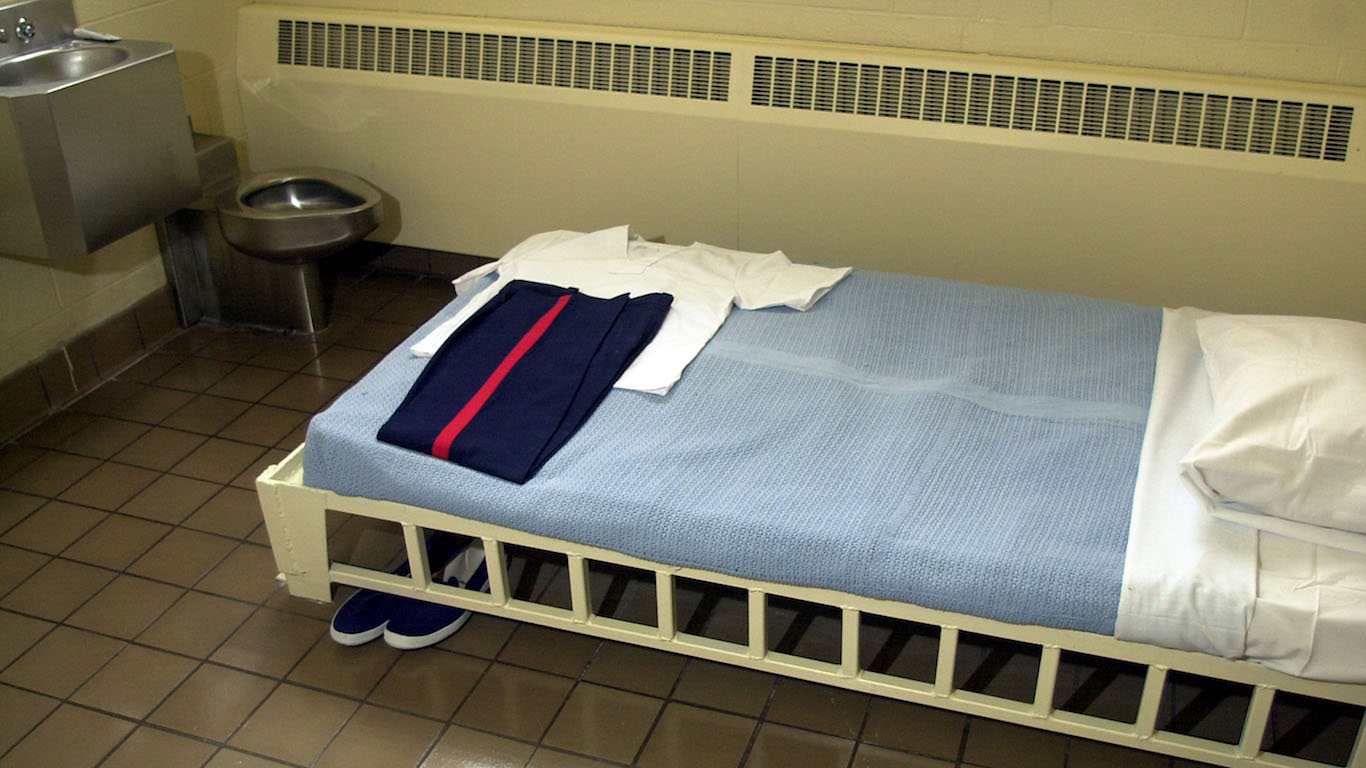
- Spending per Prisoner: $116,000
New York has 44 prisons and incarcerates over 32,000 people. Due to falling crime rates in the state, New York has closed 20 prisons between 2011 and 2022, with more planned in the future. New York state law does not allow the state to contract with private prison companies.
#33 North Carolina
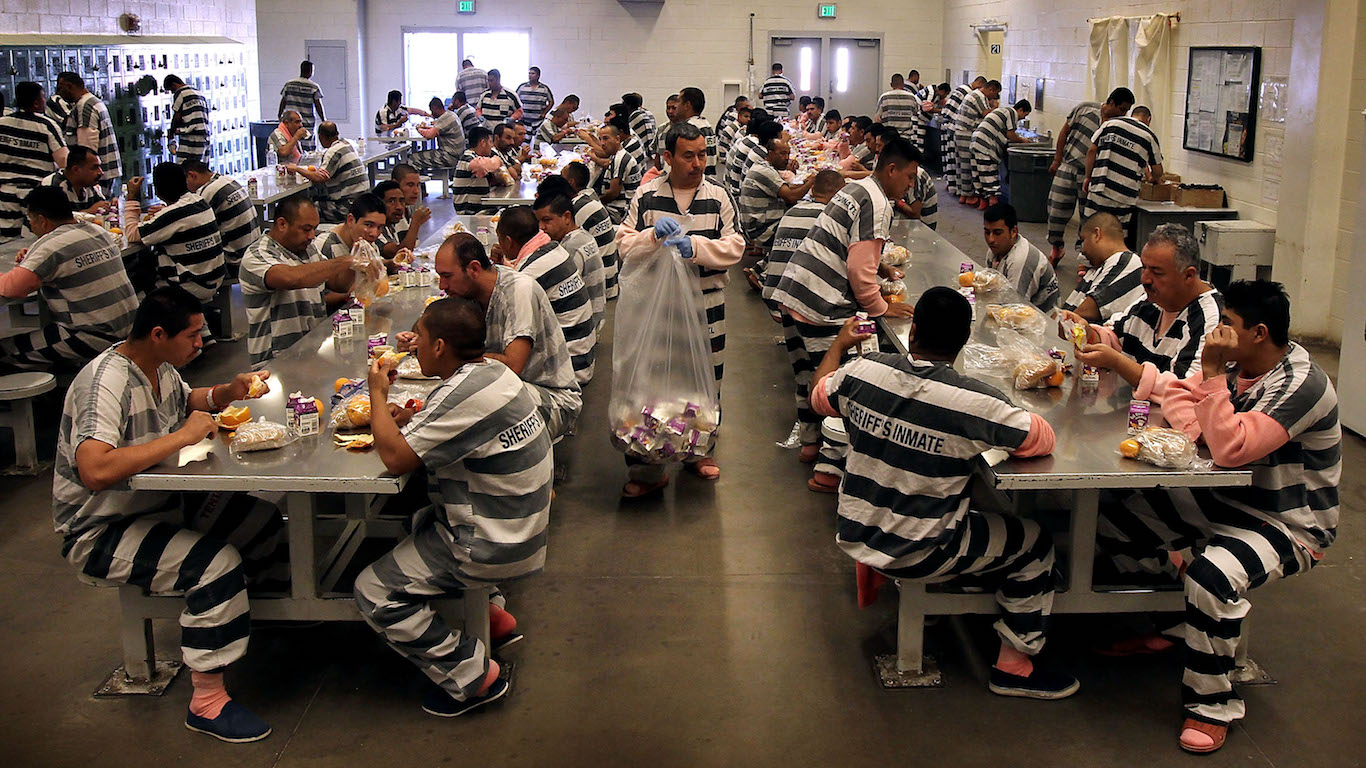
- Spending per Prisoner: $63,000
North Carolina has 54 prison facilities and has around 31,000 prisoners currently incarcerated. The state does not allow for private prison facilities and does not contract with any prison corporations.
#34 North Dakota
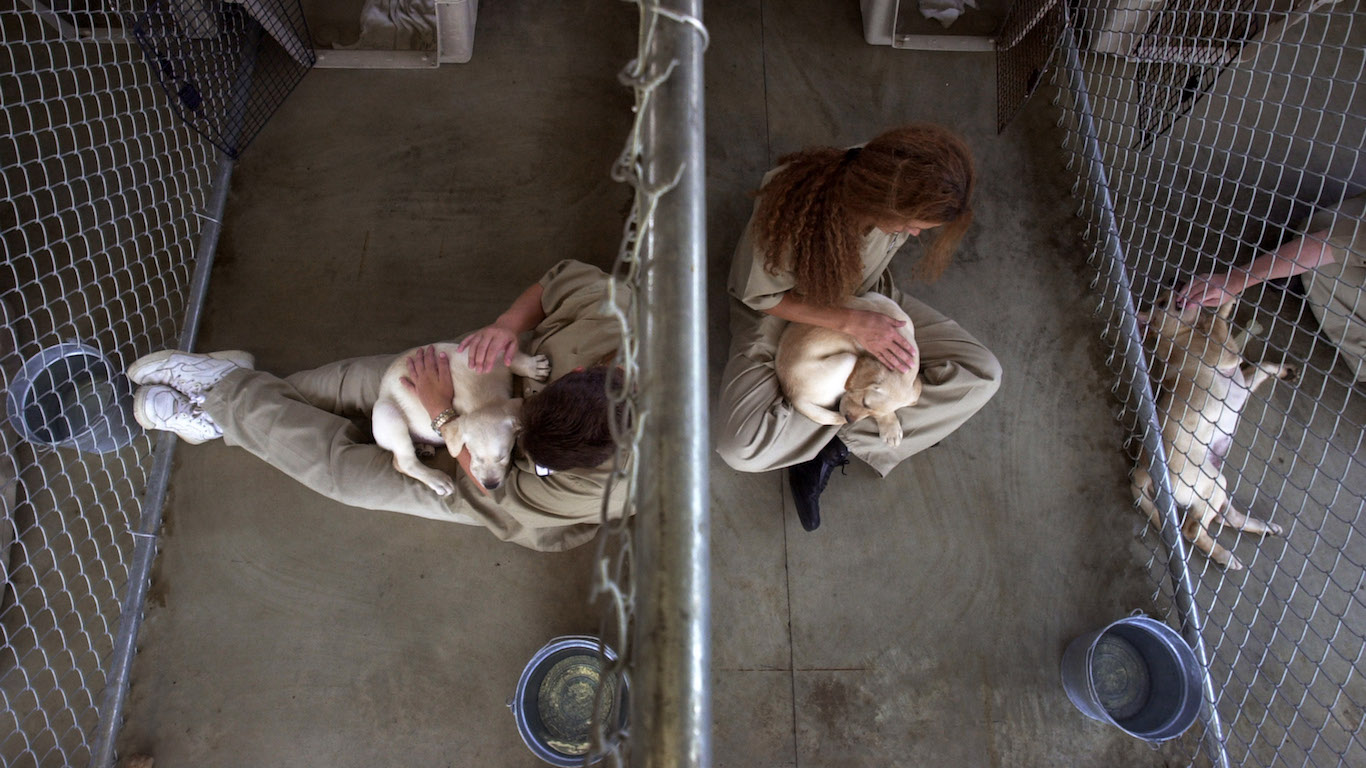
- Spending per Prisoner: $84,000
North Dakota has only four adult prisons with just over a thousand prisoners. In 2015, state leaders, judges, and other prison officials took a trip to the Halden Prison in Norway, often called the most humane prison in the world, in order to figure out how to reduce recidivism rates in North Dakota, and have seen tremendous success ever since.
#35 Ohio
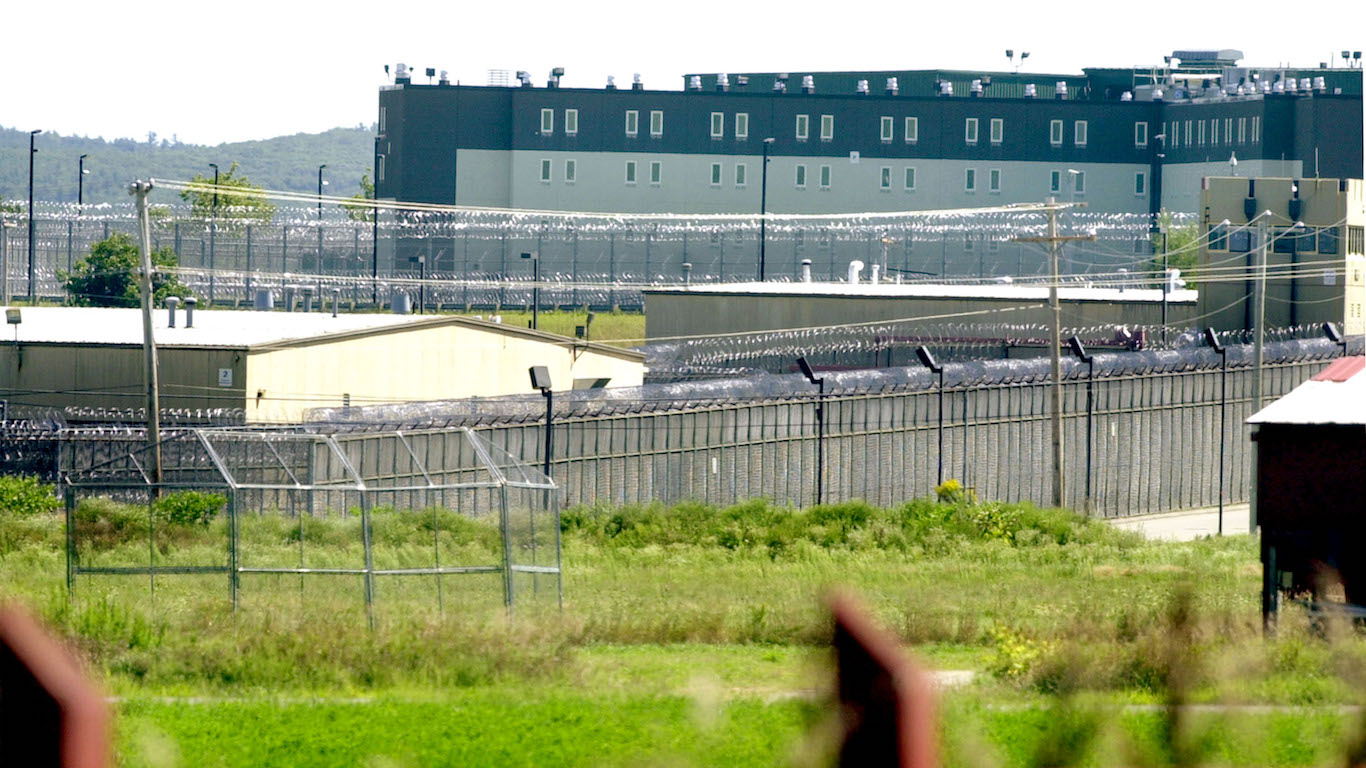
- Spending per Prisoner: $44,000
Ohio is the sixth-largest prison system in the country with over 49,000 prisoners in 27 state prisons. In 2018 alone, Ohio spent $1.8 billion on its prison system. Despite this massive budget, a newspaper in Ohio reported that in 2019, the entire inspection office for the Department of Corrections had only one full-time employee and relied entirely on interns for all inspections.
#36 Oklahoma
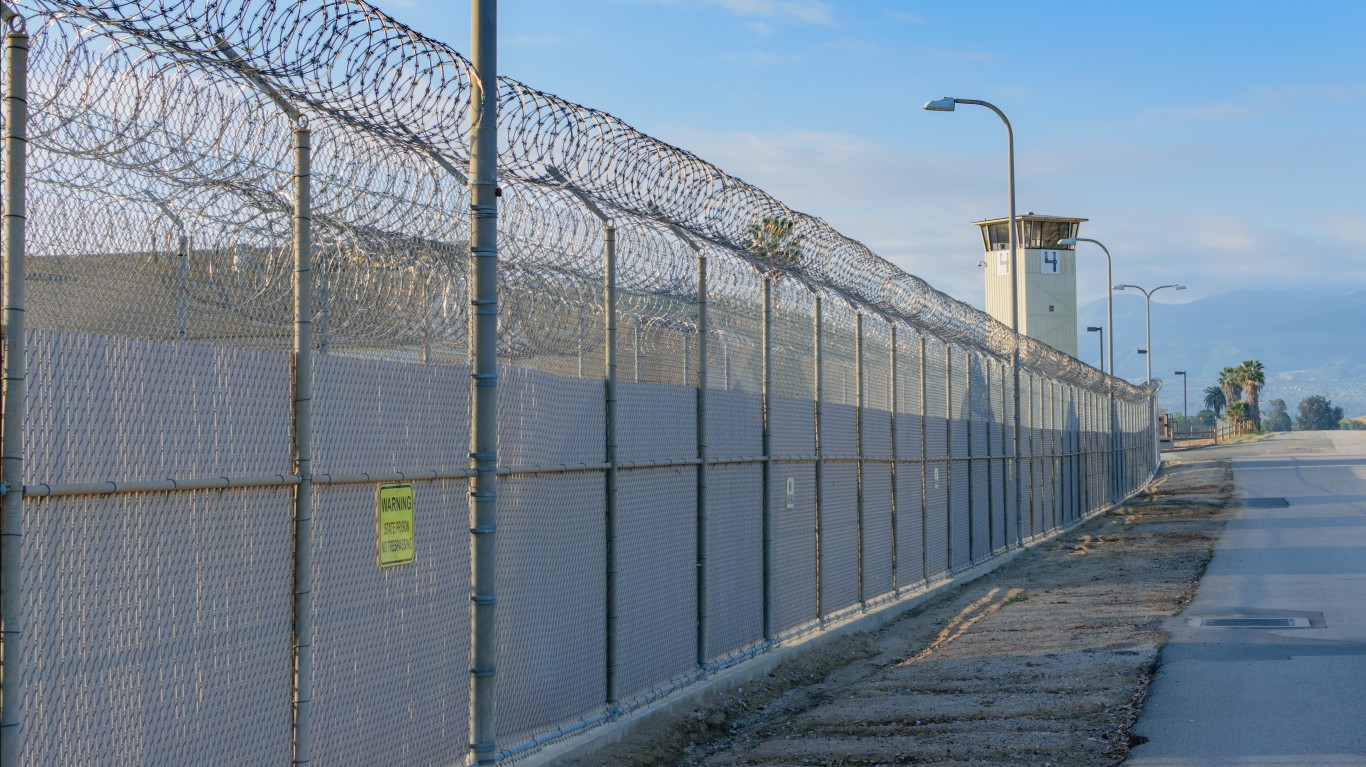
- Spending per Prisoner: $32,000
Oklahoma has 23 prison facilities, but only eight of those facilities were originally built as prisons, the rest were adapted into prison buildings. Oklhamona managed to save 12 million dollars in 2019 by releasing over 400 inmates convicted of non-violent crimes.
#37 Oregon
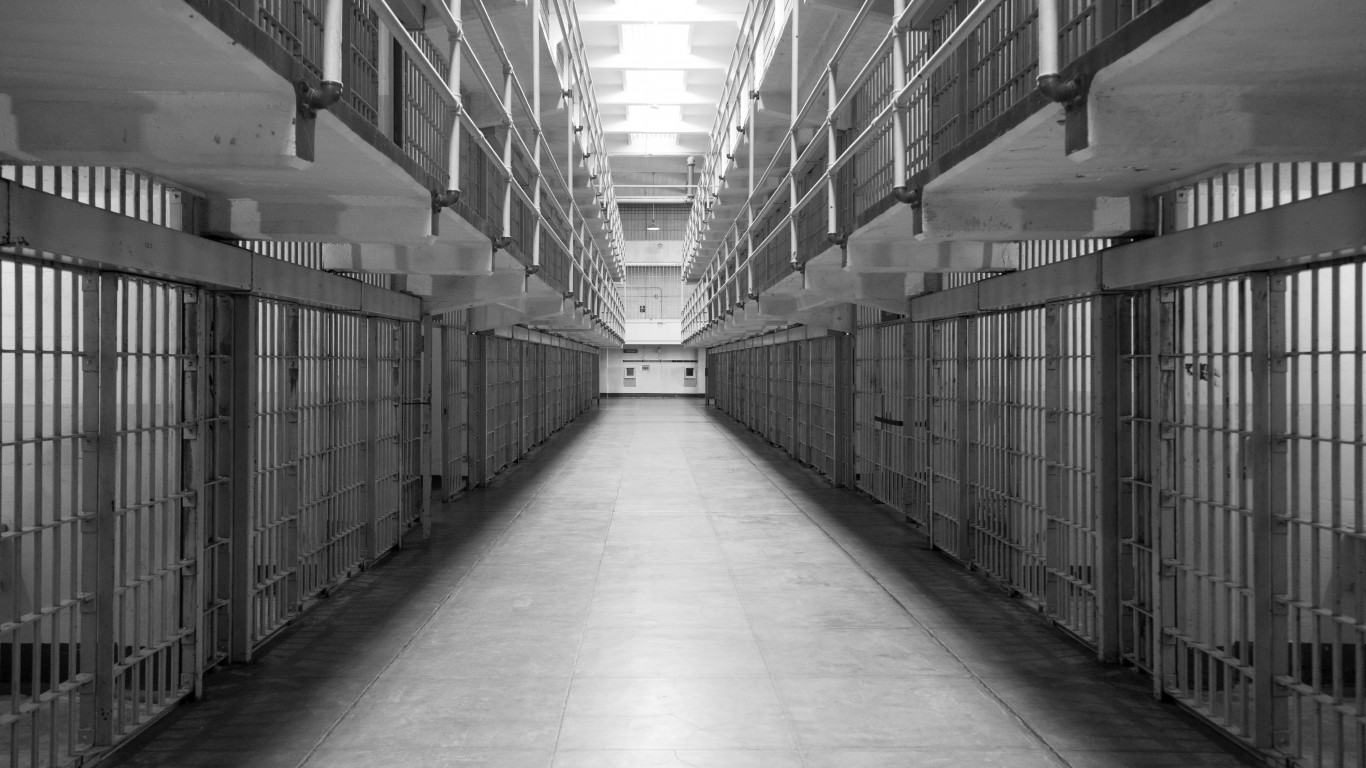
- Spending per Prisoner: $79,000
Oregon has 12 state prison facilities and announced in 2021 that it has a plan to close three minimum security prison facilities which will save the state over $44 million every year. Oregon lawmakers have legalized the death penalty four times, two times it has been voted down by Oregon’s citizens, and another time it was abolished by the Oregon Supreme Court.
Oregon does not contract private prisons and outlawed exporting prisoners in 2001.
#38 Pennsylvania
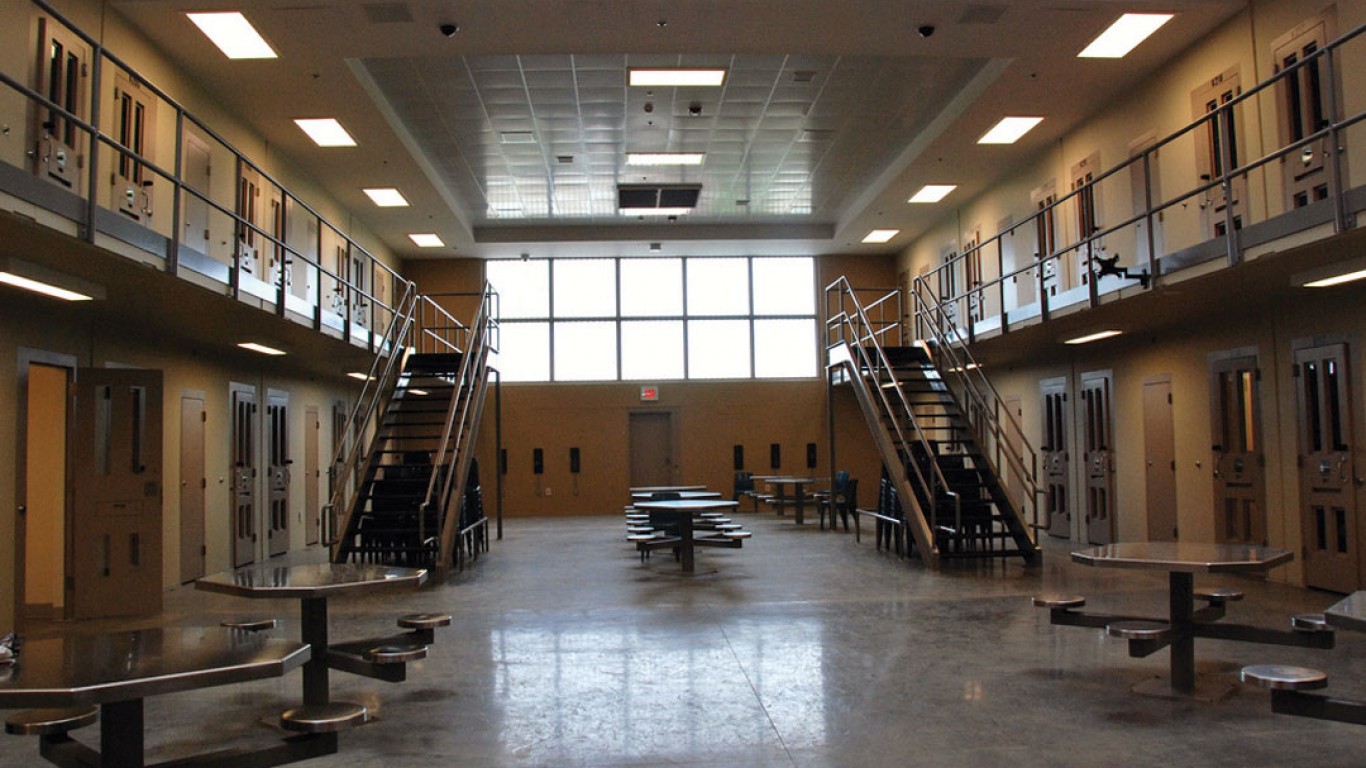
- Spending per Prisoner: $67,000
There are around 37,000 prisoners in Pennsylvania in 23 prison facilities. The state has contracted with 40 private contractors to provide transitional services for incarcerated people.
#39 Rhode Island
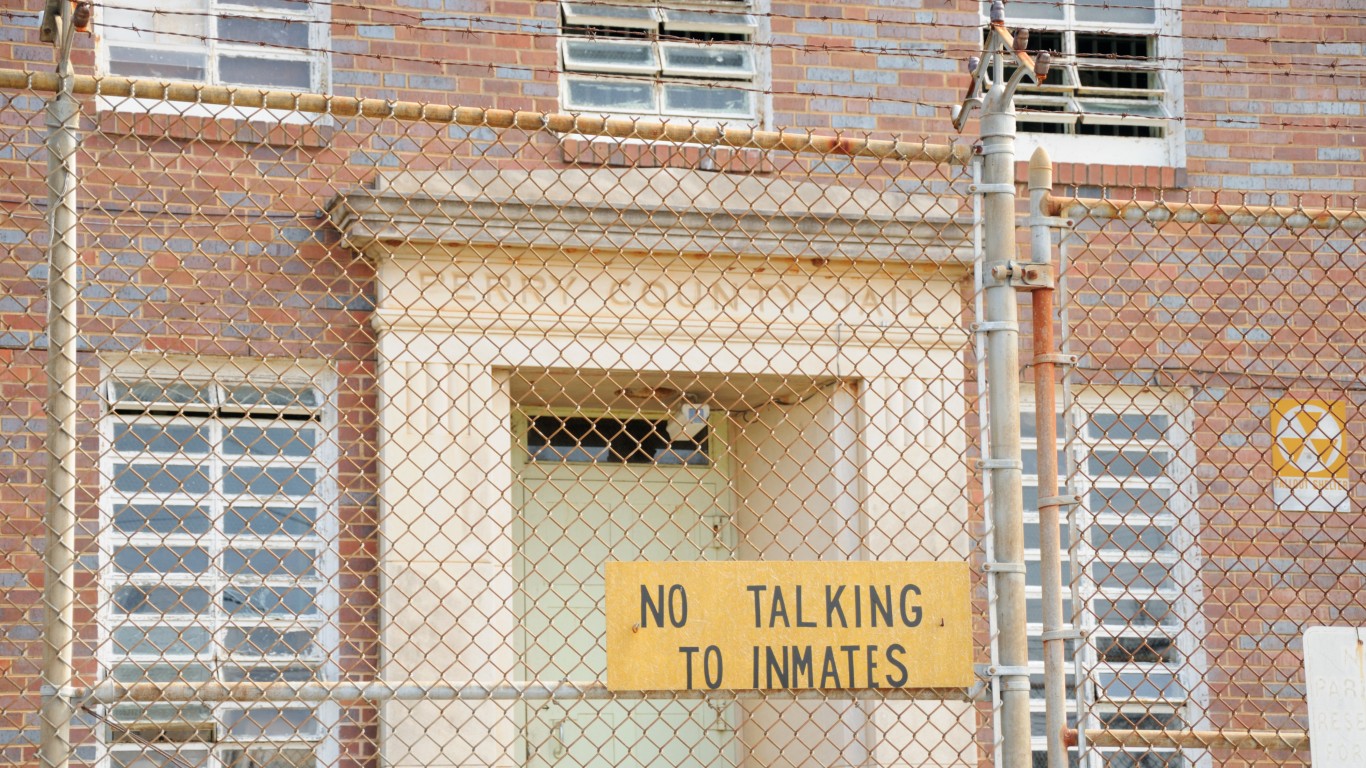
- Spending per Prisoner: $117,000
There are seven prison facilities in Rhode Island that can hold a total of 2,854 prisoners. Being such a small state, it should not be surprising that the cost per prisoner is relatively high in Rhode Island.
#40 South Carolina
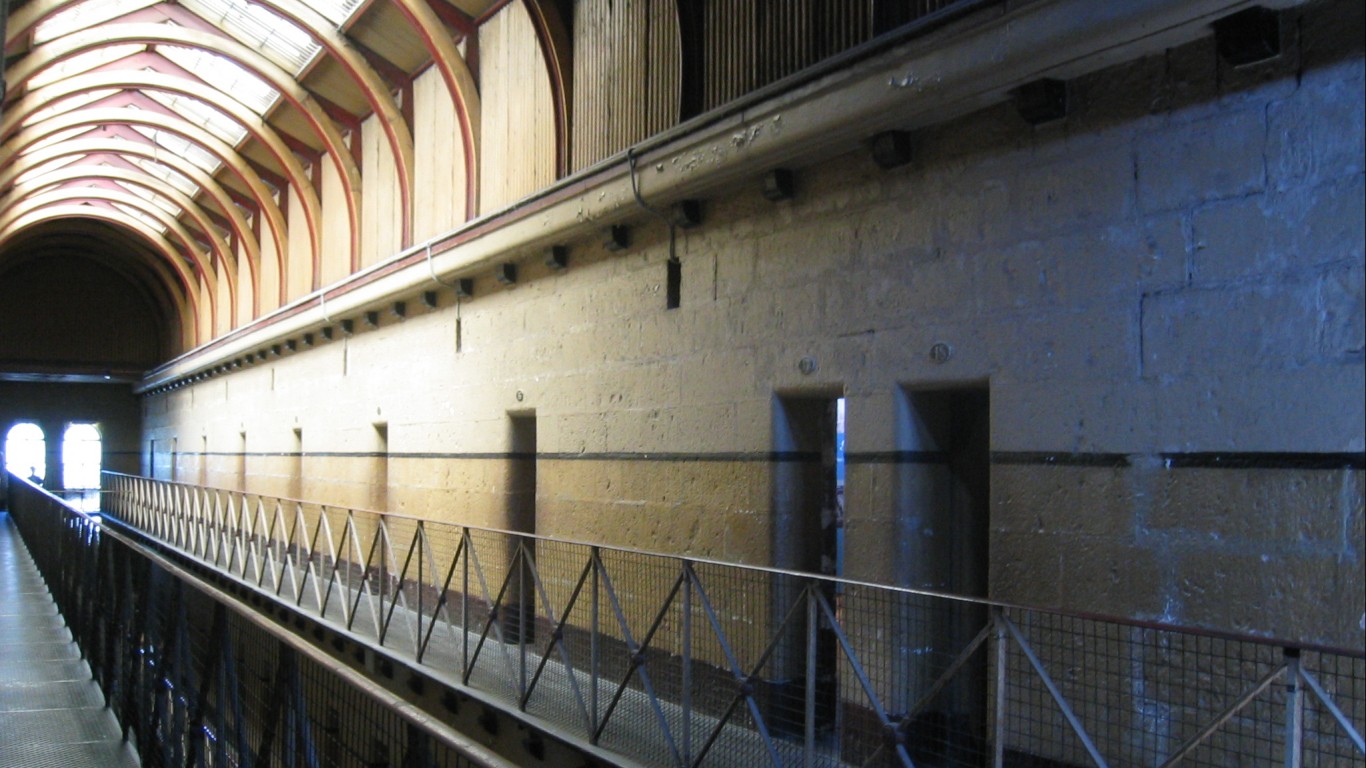
- Spending per Prisoner: $38,000
South Carolina has around 16,000 inmates in 21 prison facilities. Like its southern neighbors, South Carolina has an abysmally low cost per prisoner, and the quality of care for its prisoners reflects that.
#41 South Dakota
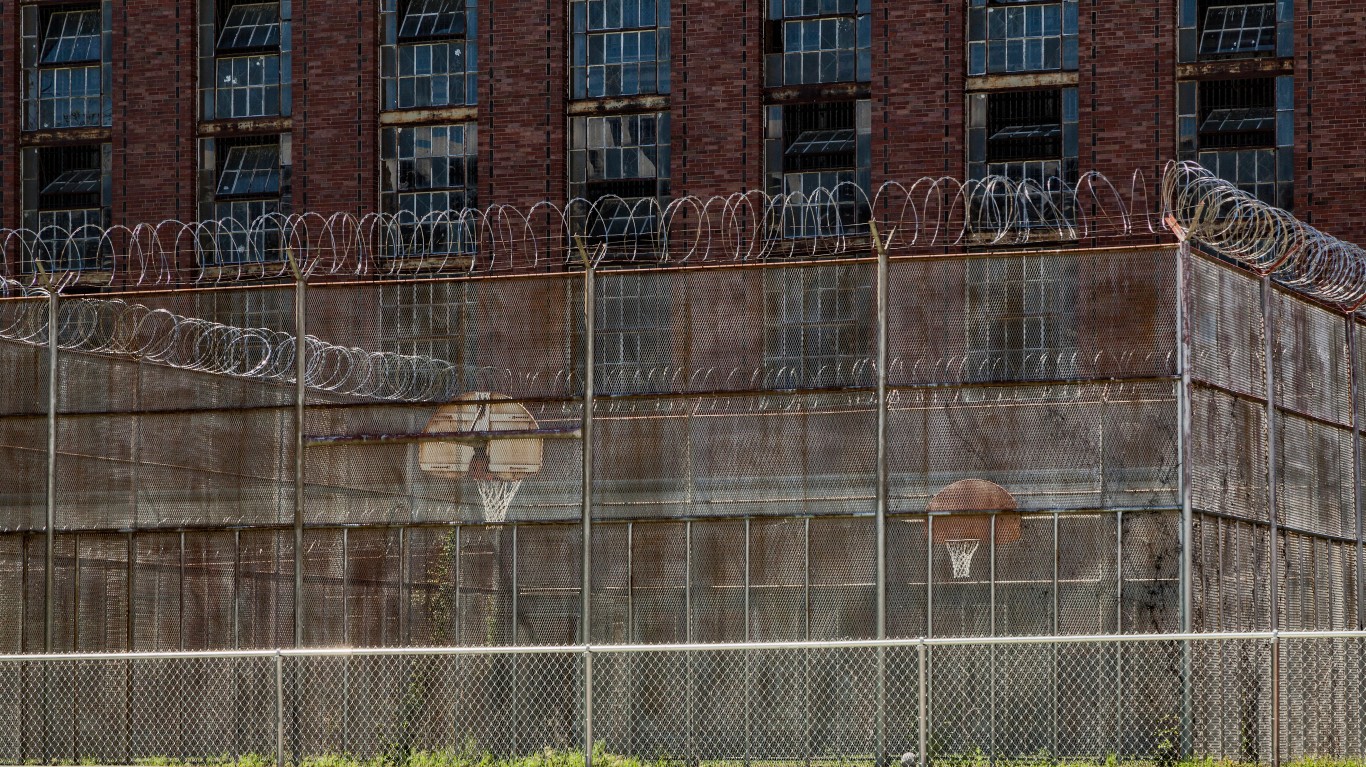
- Spending per Prisoner: $49,000
There are five prison facilities in South Dakota, and even though South Dakota has a relatively low number of inmates, it still has a budget of around $100 million, which begs the question why the amount per prisoner is so low.
#42 Tennessee
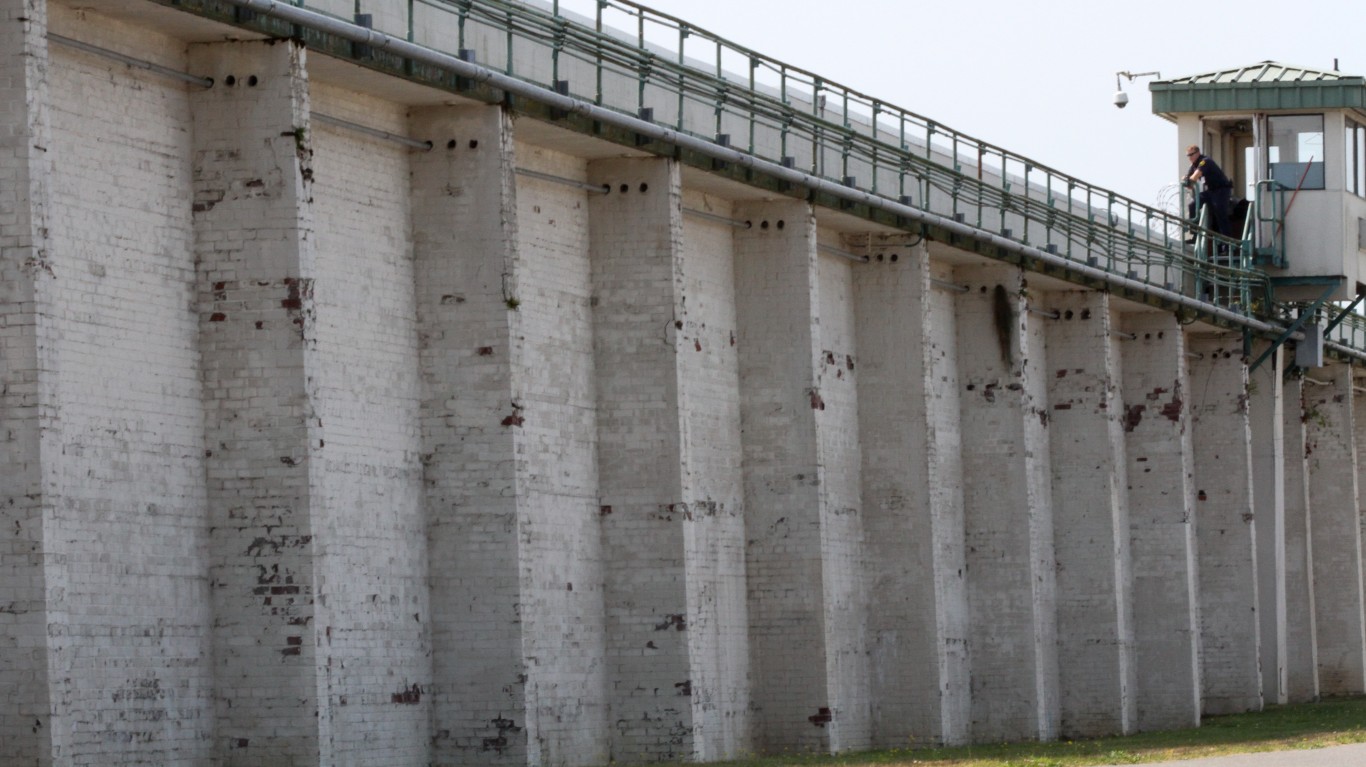
- Spending per Prisoner: $39,000
Tennessee has over 20,000 incarcerated people at fourteen prison facilities. Four of those facilities are private prisons operated by CoreCivic. Tennessee law, however, only allows the state to contract with one private prison, but lawmakers have maneuvered around this law by contracting with county governments which deal directly with CoreCivic
#43 Texas
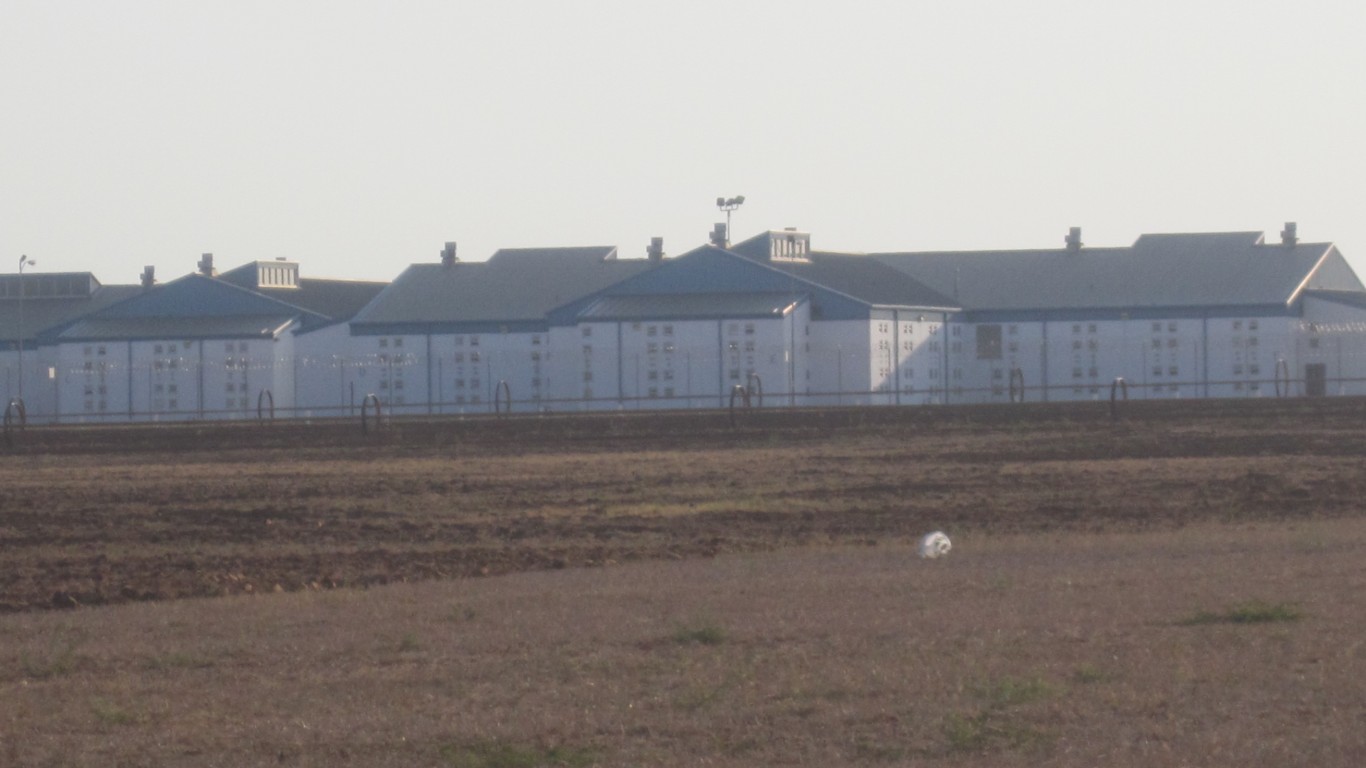
- Spending per Prisoner: $31,000
Texas has the largest prison system in the entire United States with a budget of over $3 billion. Texas prisons have a long history of human rights abuses and insufficient care. During the early 2000s, the United States Bureau of Justice Statistics found that five of the prisons in Texas were those with the highest rates of prison rapes.
Since 2007, 14 inmates have died because the temperature in Texas prisons is too high, so Texas planned to buy a climate system designed for big pens worth only $750,000. Of this deal, Texas State Senator John Whitmire said, “The people of Texas don’t want air-conditioned prisons.”
In 2017, a federal judge found that Texas was making it impossible for Muslim prisoners to practice their faith, and was actively hostile to the practice of Muslims.
#44 Utah
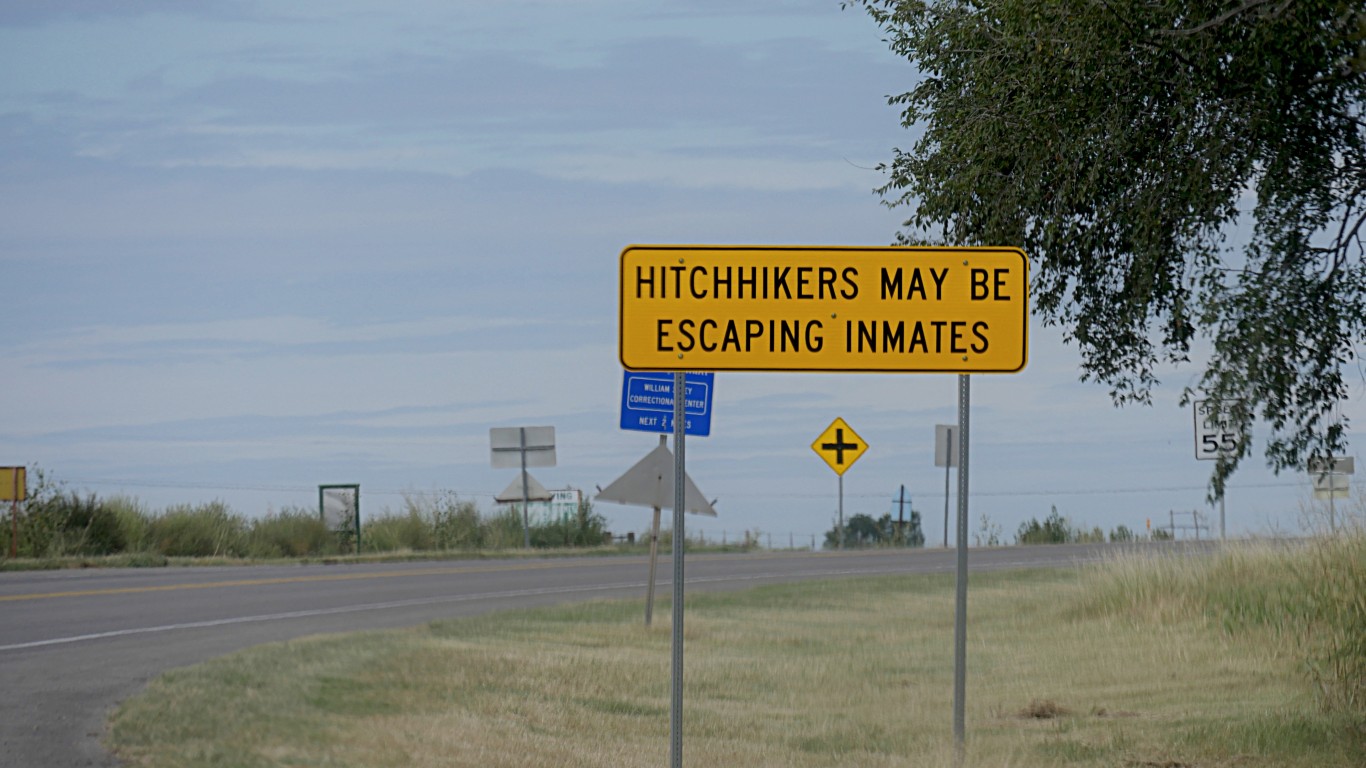
- Spending per Prisoner: $73,000
There are around 18,000 prisoners in Utah between five prison facilities. Utah profits from prison labor by using inmates to produce furniture, embroidery, signs, and more. Utah still allows the death penalty, and in keeping with the deep racist roots of the state, the first few people to be executed in Utah (and its preceding entity, the State of Deseret) were all Native Americans, as part of the local policy of eradicating the Native Americans at the time.
#45 Vermont
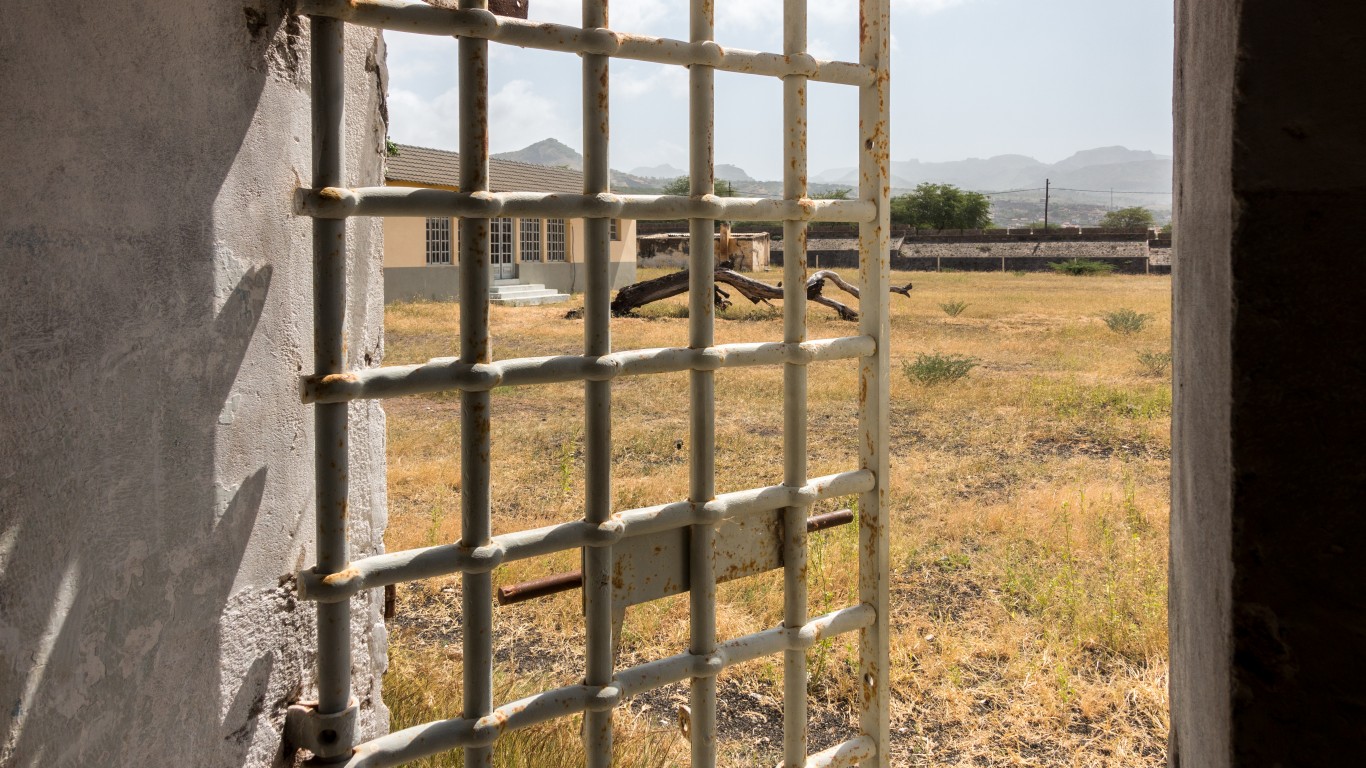
- Spending per Prisoner: $134,000
There are only around 1,300 prisoners in Vermont, between six Vermont prison facilities. Vermont also contracts with CoreCivic to send prisoners to prisons in Mississippi.
#46 Virginia
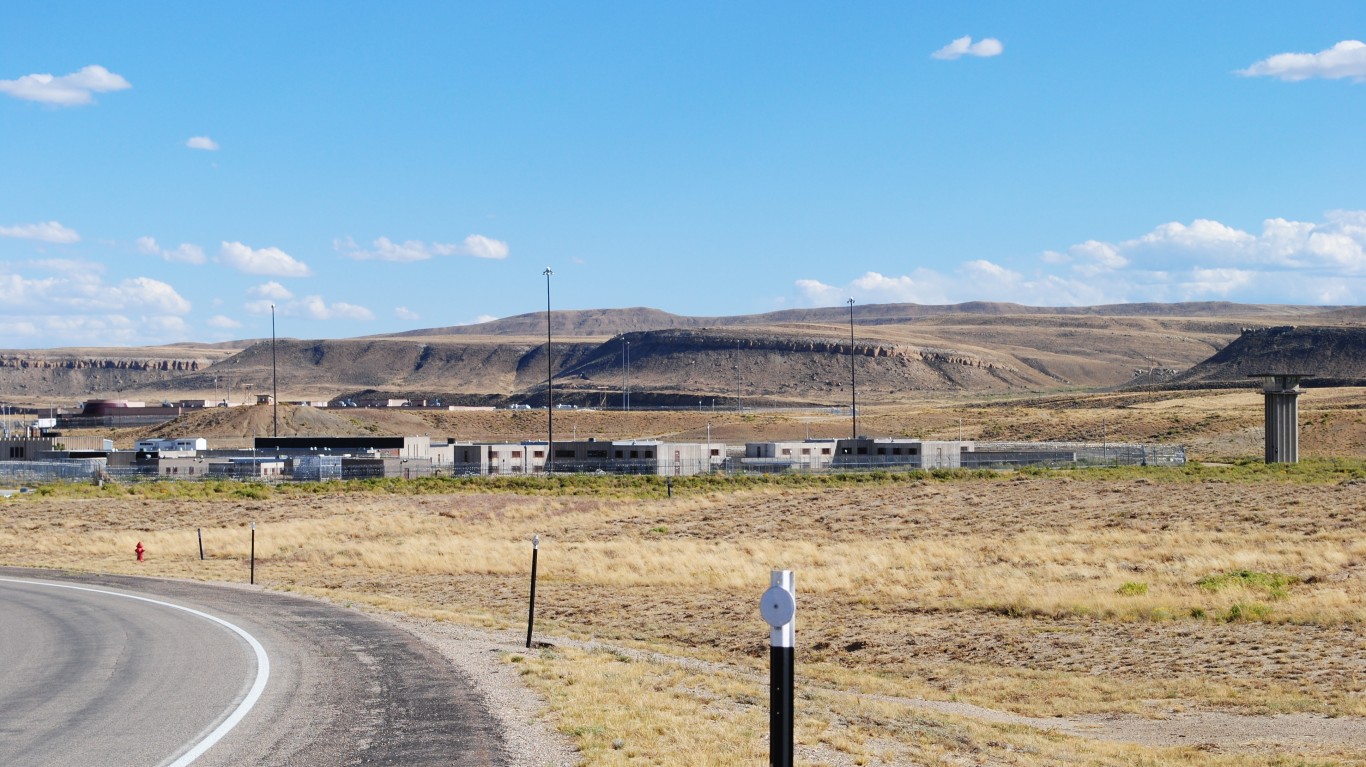
- Spending per Prisoner: $61,000
There are around 23,000 prisoners in Virginia, with an annual budget of over $1 billion and around 44 prison facilities. As with all other states on this list, there have been numerous lawsuits and reports of insufficient care and violation of constitutional and human rights at Virginia prisons.
Virginia also boasts the fourth-lowest recidivism rate in the country.
#47 Washington
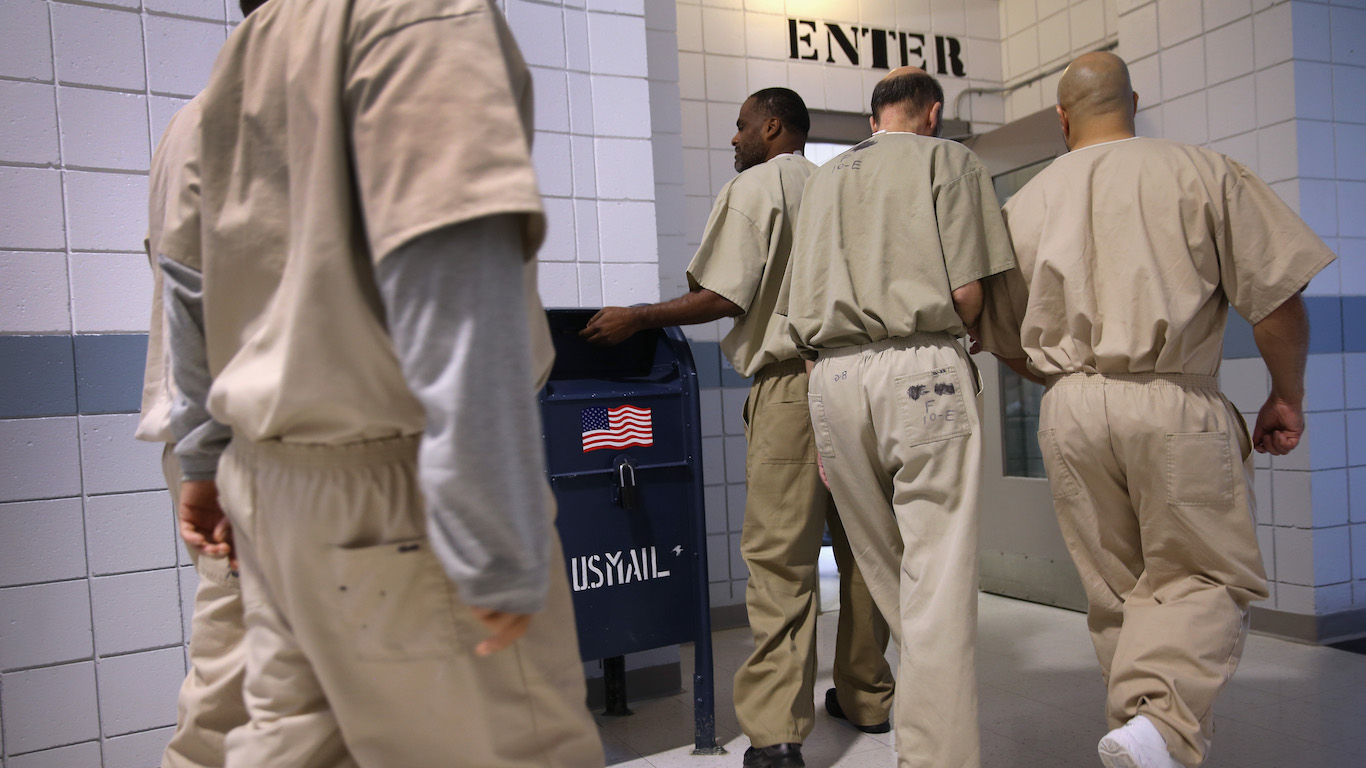
- Spending per Prisoner: $108,000
Washington has 12 adult prison facilities with more than 12,000 prisoners. Washington contracts private corporations to house prisoners outside of Washington, replaced prisoner-prepared food with prepackaged contractor foods, and contracts JPay which charges prisoners and their families expensive fees for using video visiting software, emails, sending photos, and more. This practice is not unique to Washington
#48 West Virginia
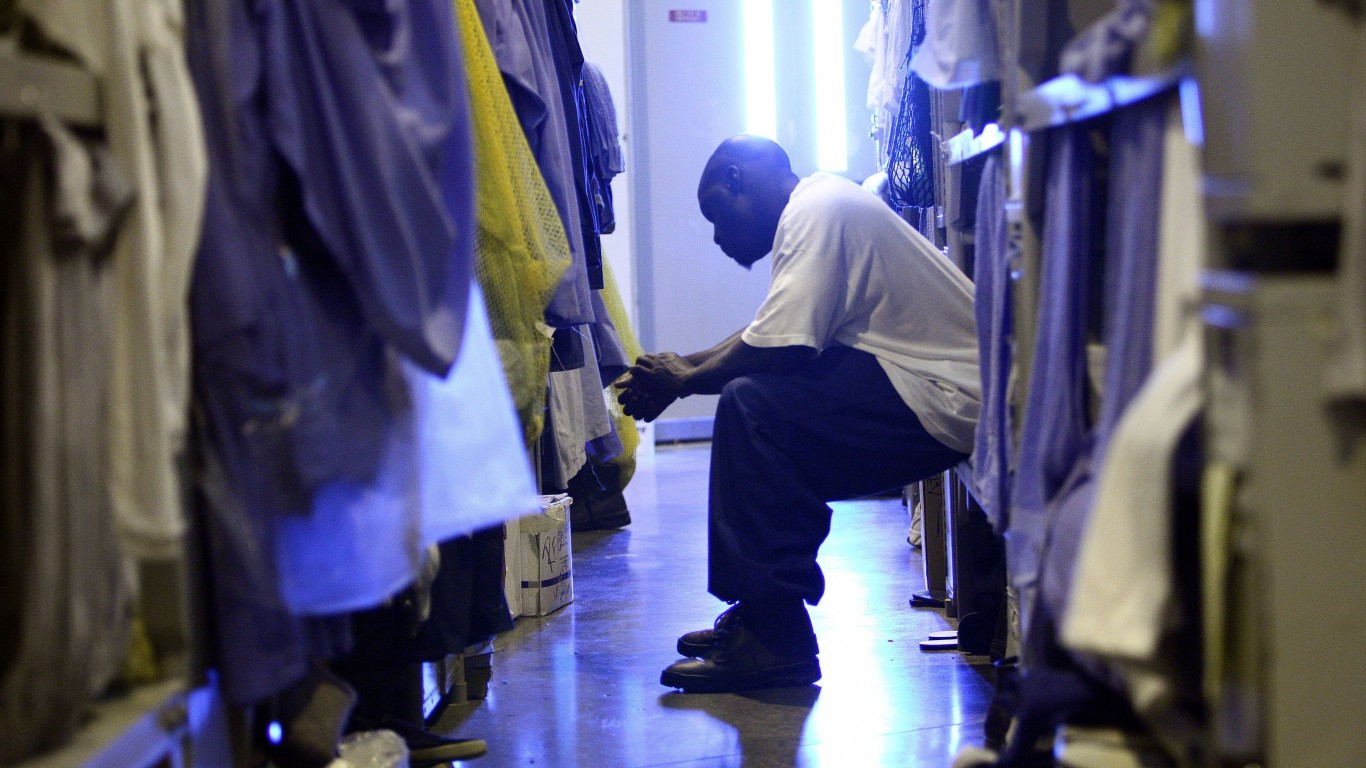
- Spending per Prisoner: $82,000
West Virginia has the highest female incarceration rate out of any state and country in the entire world, with 273 women of every 100,000 in prison. All of the prison facilities in West Virginia are overcrowded, and reports as recent as 2017 show that the state had employee shortfalls of 300 correctional officers, which isn’t surprising since West Virginia has the second-lowest pay rate for corrections officers in the country, at around $12 per hour.
#49 Wisconsin
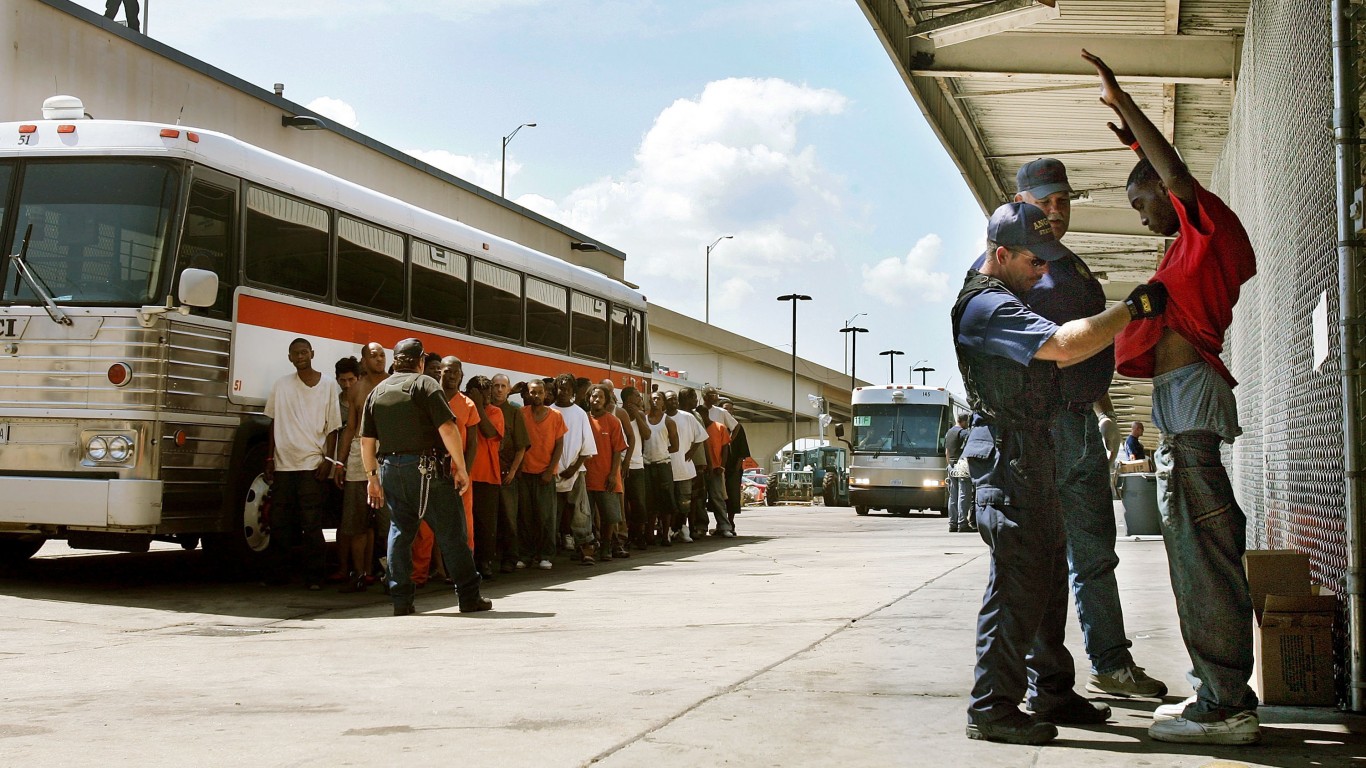
- Spending per Prisoner: $64,000
There are 19 adult prison facilities and 16 adult correction centers in Wisconsin, with a budget of more than $2.8 billion annually. Wisconsin has consistently used prison labor in times of natural disasters and labor shortages.
#50 Wyoming
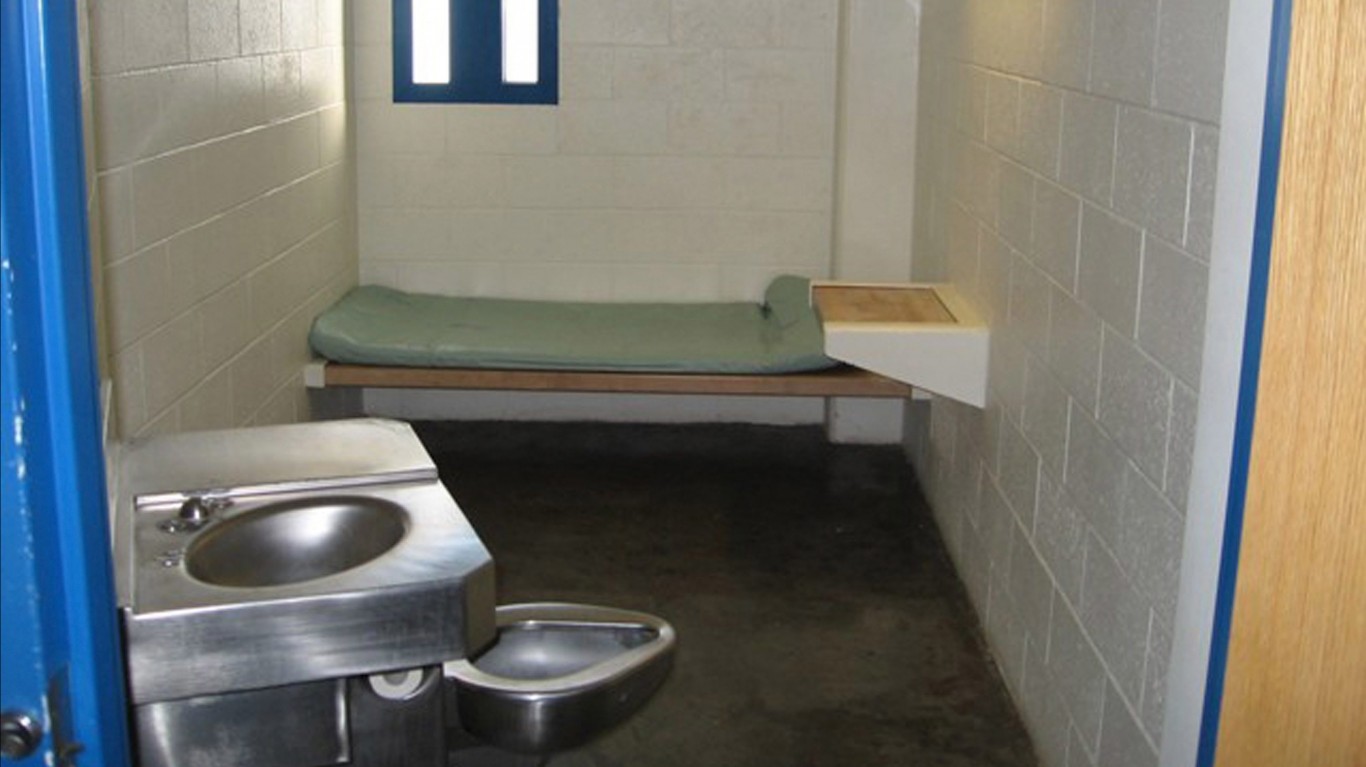
- Spending per Prisoner: $75,000
There are five prison facilities in Wyoming. The Wyoming prison system has long been overcrowded and began exporting prisoners to facilities in Mississippi. Female prisoners are now having to be held in all-male prisons because of the lack of space for them.
Thank you for reading! Have some feedback for us?
Contact the 24/7 Wall St. editorial team.
